A revisitation of sculpture, an extension of its three dimensionality and attunement to body, context and narrative, is at the heart of Yu Ji’s practice. Her work, that spans installation, video and performance, exists as a series of interventions, both into space and creating it, taking medium and materiality as a starting point. Creating her own language, Yu Ji enlivens her visual sentences with a rich vocabulary rooted in form, objects, humanity and the everyday.
Running throughout Yu Ji’s sculptural work is an acknowledgement of the body. The cast of a limb, the outline of a body part – Yu Ji creates sensitive yet weighty anatomical and amorphous objects that evoke a sense of eery mechanical disengagement, as if an alter human had been created then pilfered. Consider, for example, ‘Altar the Ghost’ (2018), in which, amidst a sea of black sand, there are a series of cast and cast-away objects. Upon closer contemplation, one identifies a hand, a structure that resembles a torso; the tones vary from a warm beige to grey. The titles of each work emphasise the physical and sense of absence, incorporating terms such as ‘flesh’ and ‘ghost’, pointing to a spectral existence. Heightening a sense of tender presence is the permeation of balance: each object is mounted, hooked, reliant upon another element, a visualisation that is emphasised by the incorporation of towering and leaning pillars, each of which have an odd levity given their materials of cement and iron.
This play between depiction, material and weight exists throughout Yu Ji’s practice. Referencing back to the earlier work ‘Green Hair Monster’ (2016), for example, there are a series of sculptures, gilded by a faint dark green moss, hanging from metallic threads. Despite their reference as ‘Still Life’, they rely on gravity to ever so slightly hover, a movement that contrasts with the monumental rootedness of ‘Green Hair Monster 1601’. Similar to ‘Altar the Ghost’, there are a series of contraptions, straps, pushes and pulls, holding the elements together, a tightening of bounds and grip. There is additionally, through the title, the reference to something or someone otherworldly. Quite distinctly, however, one notices an incorporation of living elements: beyond the moss, there is a series of fruits, trapped, wedged, hidden yet on display, existing as punctuations in her sculptural play. As such, Yu Ji mounts a tension between the living and the not, the ad hoc and purposely considered.
A rich sense of texture additionally defines Yu Ji’s works. In the series of pieces created for the Hugo Boss Asia 2017 prize, for example, there is a chief work, ‘Etudes-Lento IV’, composed of metallic chains, that beyond their rust and chandelier-like entanglement, are oozing, dripping, amber muck. As with the moss in ‘Green Hair Monster’, this additional layer has an unctuousness to it that adds a sensual element to the sculpture beyond its visual impact. There is additionally a sense of organic growth, beyond the materials she otherwise uses such as cement and iron, that may typically be used for construction. Tying in with this previously identified notion of abandonment, in the site-specific installation ‘Silver Lake’, there are a series of plastic clear sheets on which black and white images of ruins are imprinted, pulled taut across the room, ironically tugging or resting on contemporary pillars. Emphasising a sense of bygones are a series of torso casts, resting on the floor in a ring of their own rubble. In centre point, there is the film ‘Pataauw Stone’ (2015) in which she moves through the landscape of the Qixing Mountain in Taipei.
Ultimately, Yu Ji is a rich narrator of complex relationships, between people and things, life and not, presents and bygones. Every object, installation, video is deliberate, mesmeric and subject to a palpable articulation rooted in considerations of material, texture, weight and tone. Encountering Yu Ji’s work is physical and mnemonic, sparking reference points but also urging one to revisit the relationships between space, body and time, reminding each of our own historicity.
Yu Ji obtained her MA from the Department of Sculpture, College of Art of Shanghai University, in 2011. In 2008, she co-founded AM Art Space – an artist-led space in Shanghai, promoting experimentation and exchanges between artists, curators and the public. Yu Ji has exhibited internationally with recent solo exhibitions including Hide Me in Your Belly, Centro Pecci, Prato, Italy (2024); We the singular in multiple ghosts. I the multiple as parts of whole., ICA Institute of Contemporary Art, NYU, Shanghai (2023); A Guest, A Host, A Ghost, OCMA Orange County Museum of Art, Costa Mesa (2023); Miss Shell, Delta, and Two Noughts, CCA Centre for Contemporary Arts, Berlin (2023); Against Shadows, Sadie Coles HQ, London (2022); Wasted Mud, Chisenhale Gallery, London (2021); Spontaneous Decisions II, Gallery 0, Centre Pompidou x West Bund Museum, West Bund Museum, Shanghai (2021); Forager, Edouard Malingue, offsite at Avenue Apartments, Shanghai (2020). Yu Ji was shortlisted for the Sigg Prize 2023. Her recent public commissions include KU Leuven and the High Line New York.
Yu Ji New York, USA, B. Shanghai, China, 1985
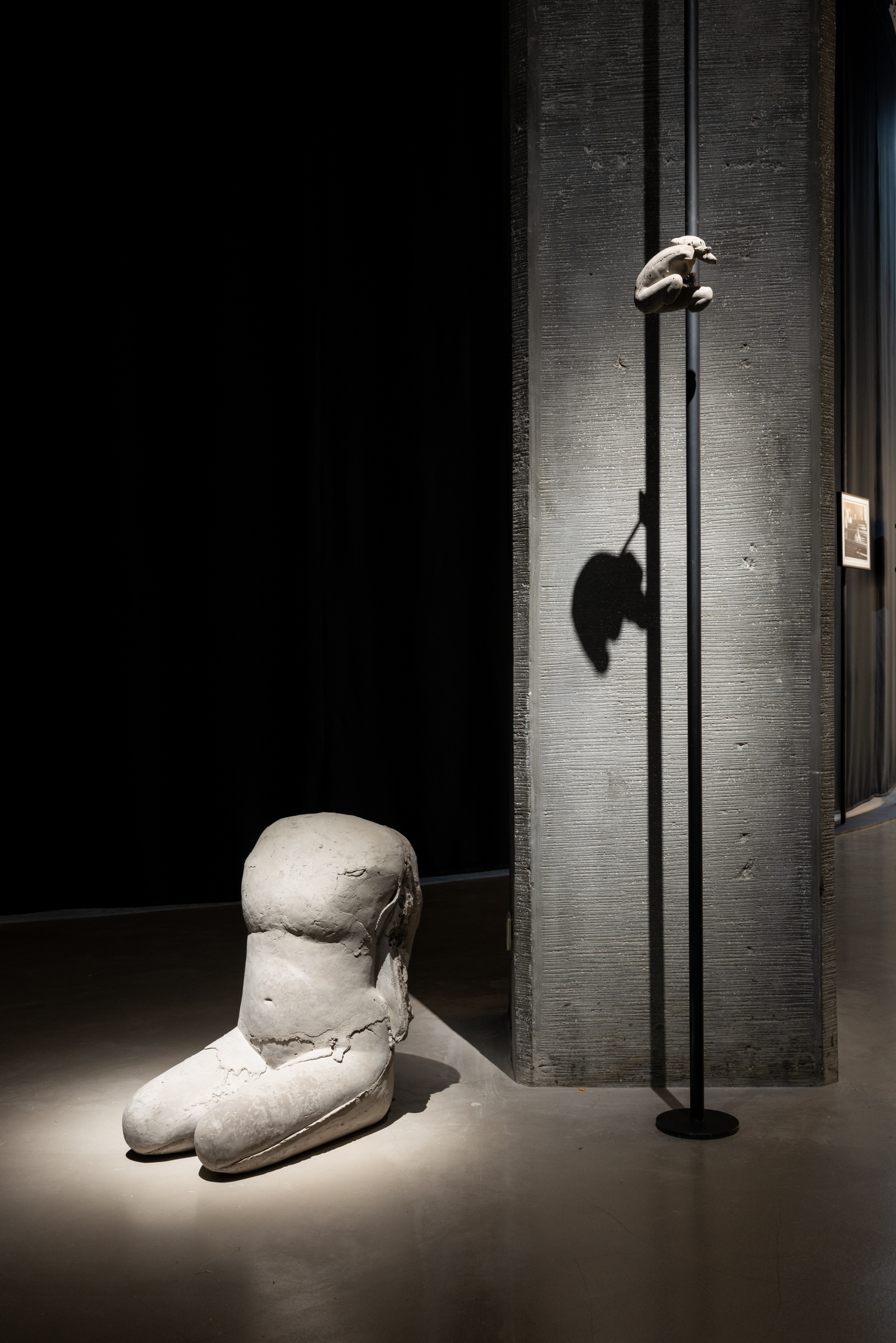
Installation view. Image courtesy of Taipei Fine Arts Museum, photo by Lu Guo-Way.
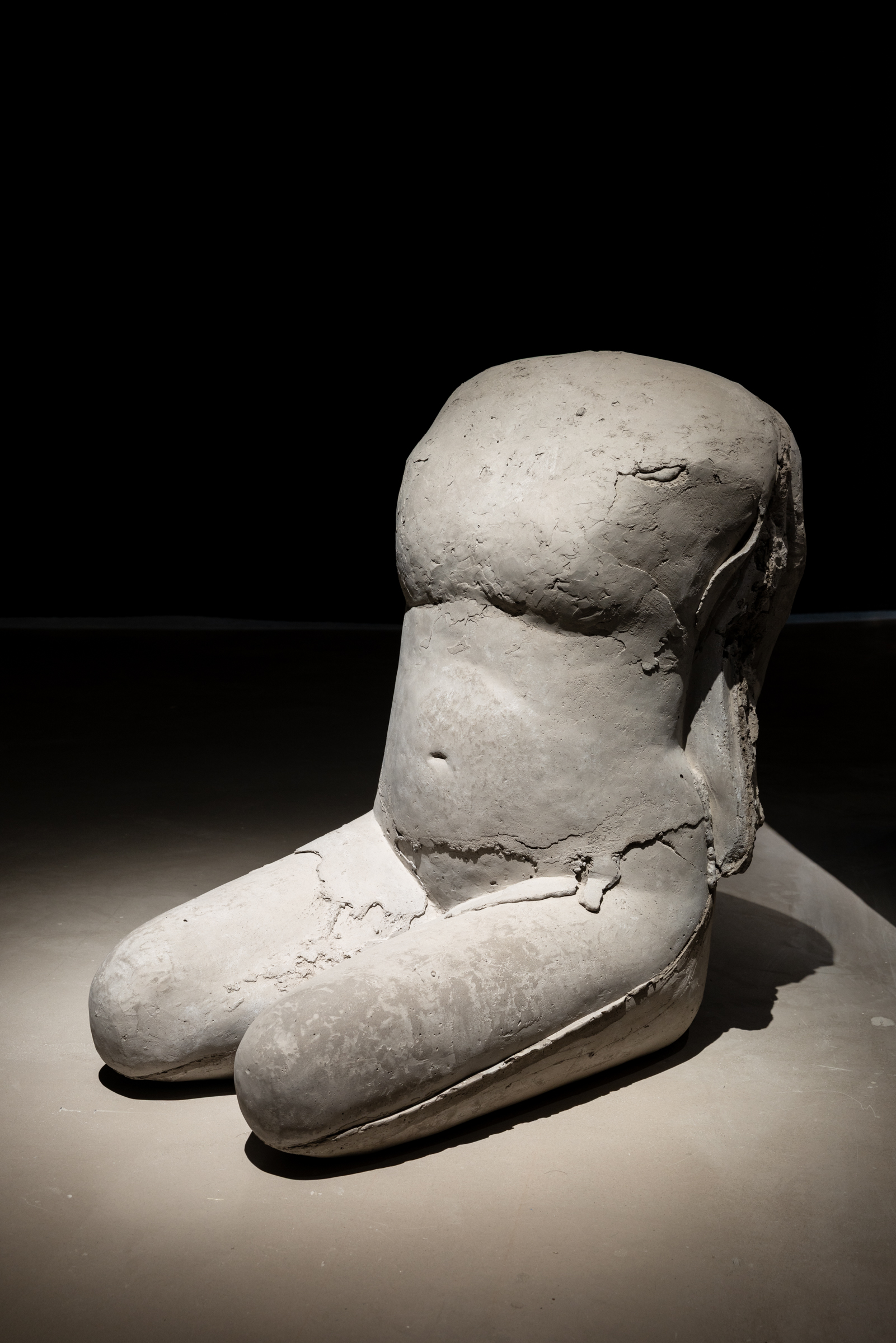
Yu Ji, Flesh in stone No.8, 2020. Cement, sand, metal, 60 x 40 x 55 cm.
Image courtesy of Taipei Fine Arts Museum, photo by Lu Guo-Way.
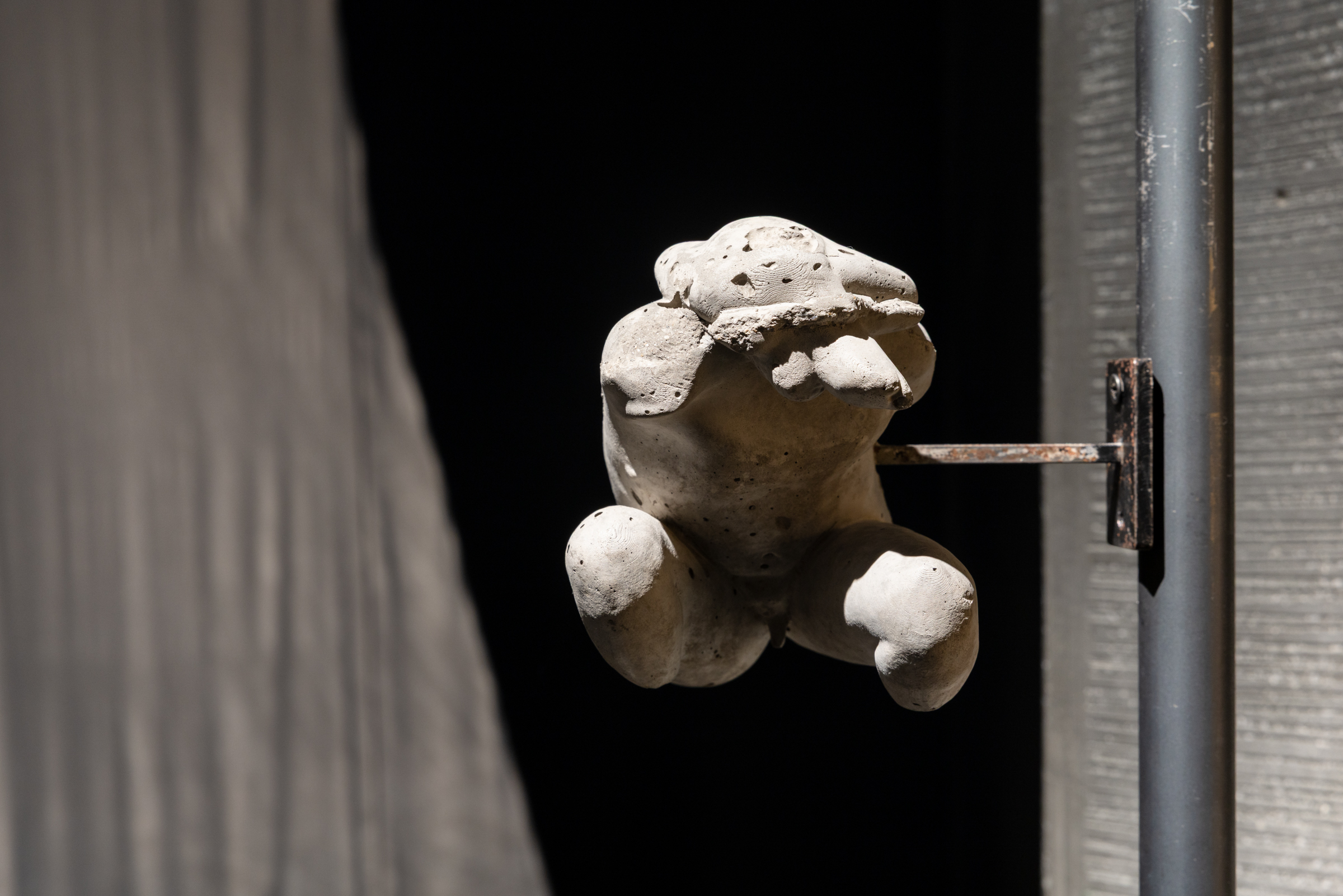
Yu Ji, Flesh in Stone – Tiny Figure 2401, 2024. Cement, iron, 13 x 14 x 15 cm.
Image courtesy of Taipei Fine Arts Museum, photo by Lu Guo-Way.
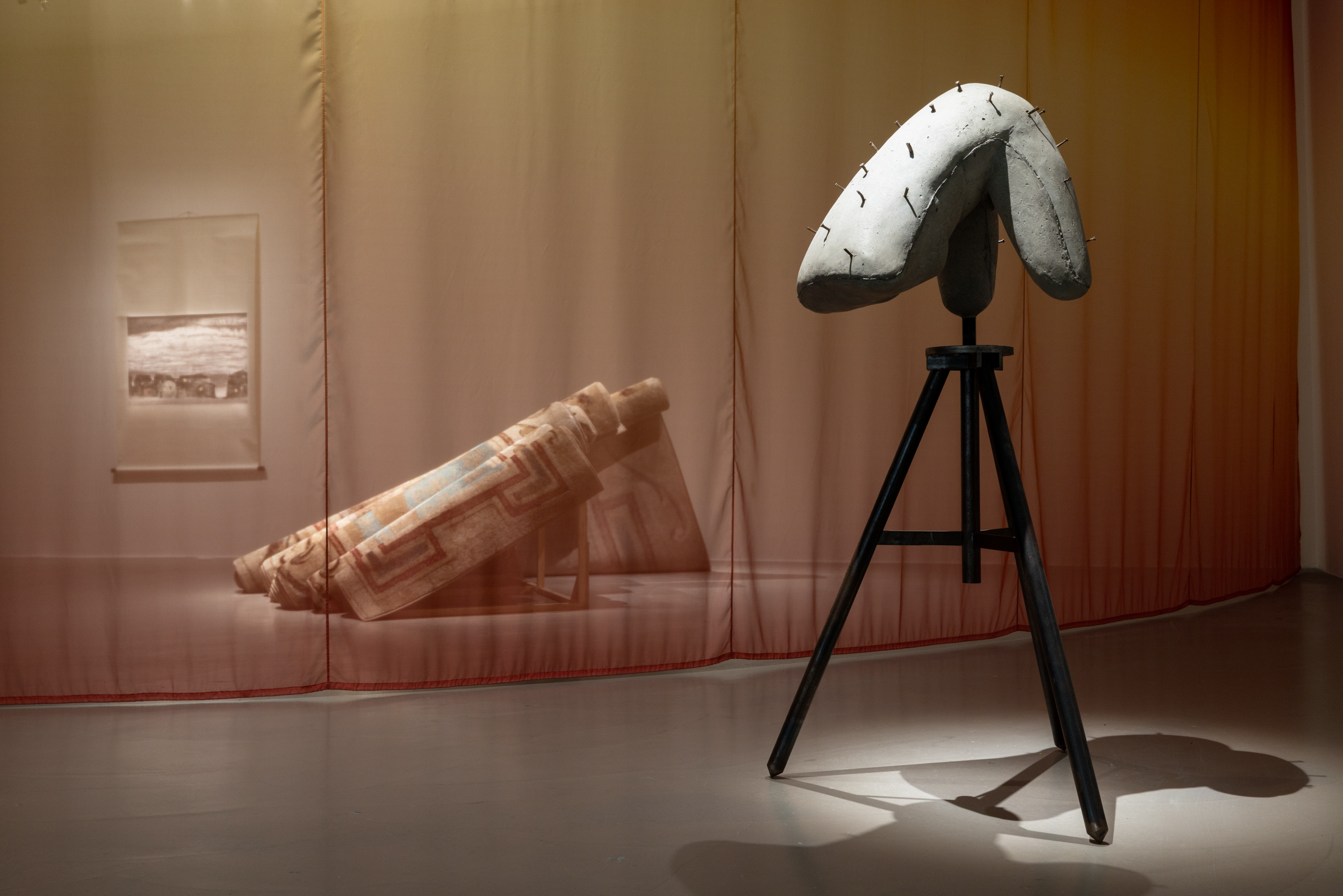
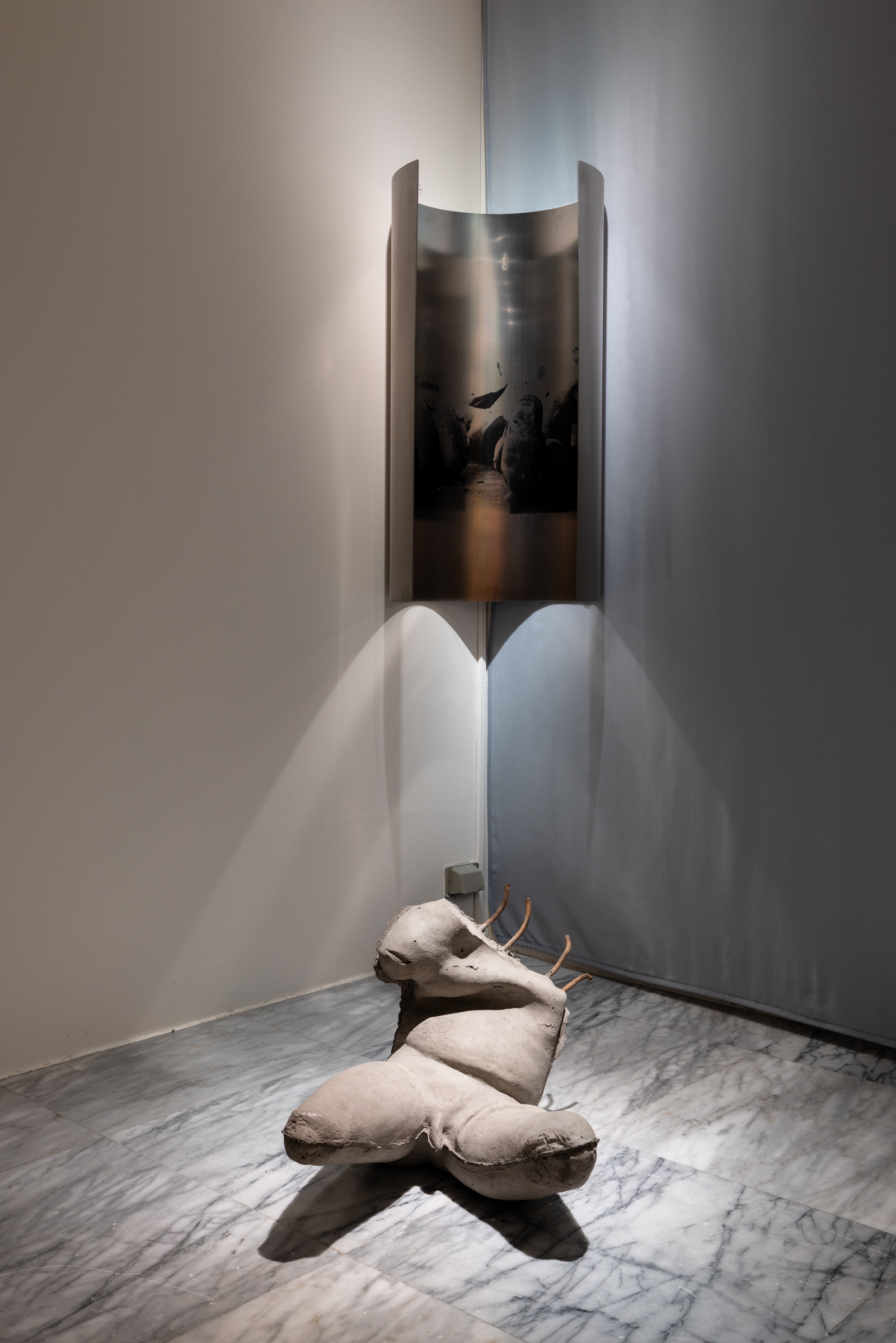
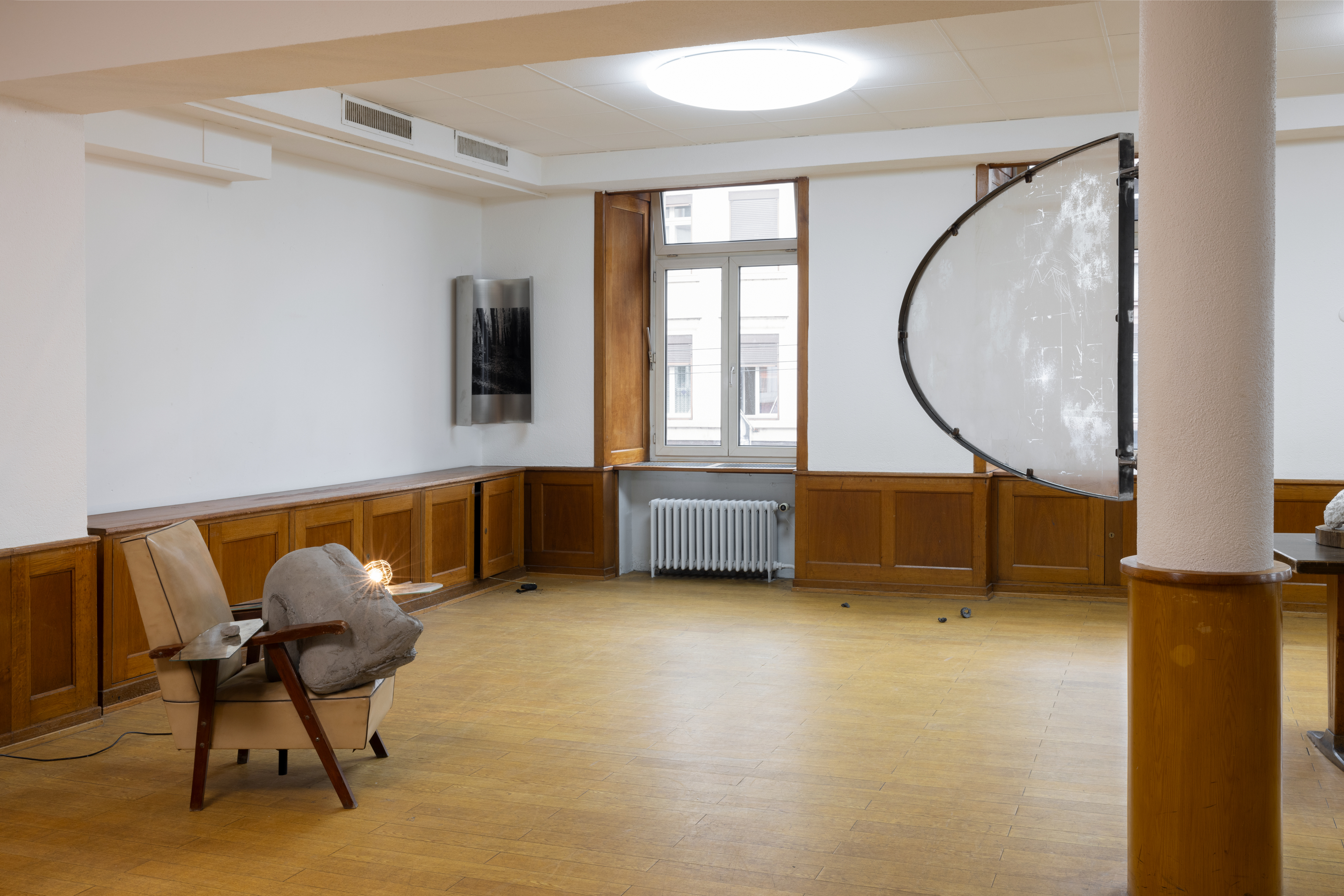
Installation view, Yu Ji at Art Basel Basel Parcours, Hotel Rheinfelderhof, Basel, 2025.
© Yu Ji. Courtesy the Artist, Kiang Malingue and Sadie Coles HQ, London.
Photo: Andrea Rossetti
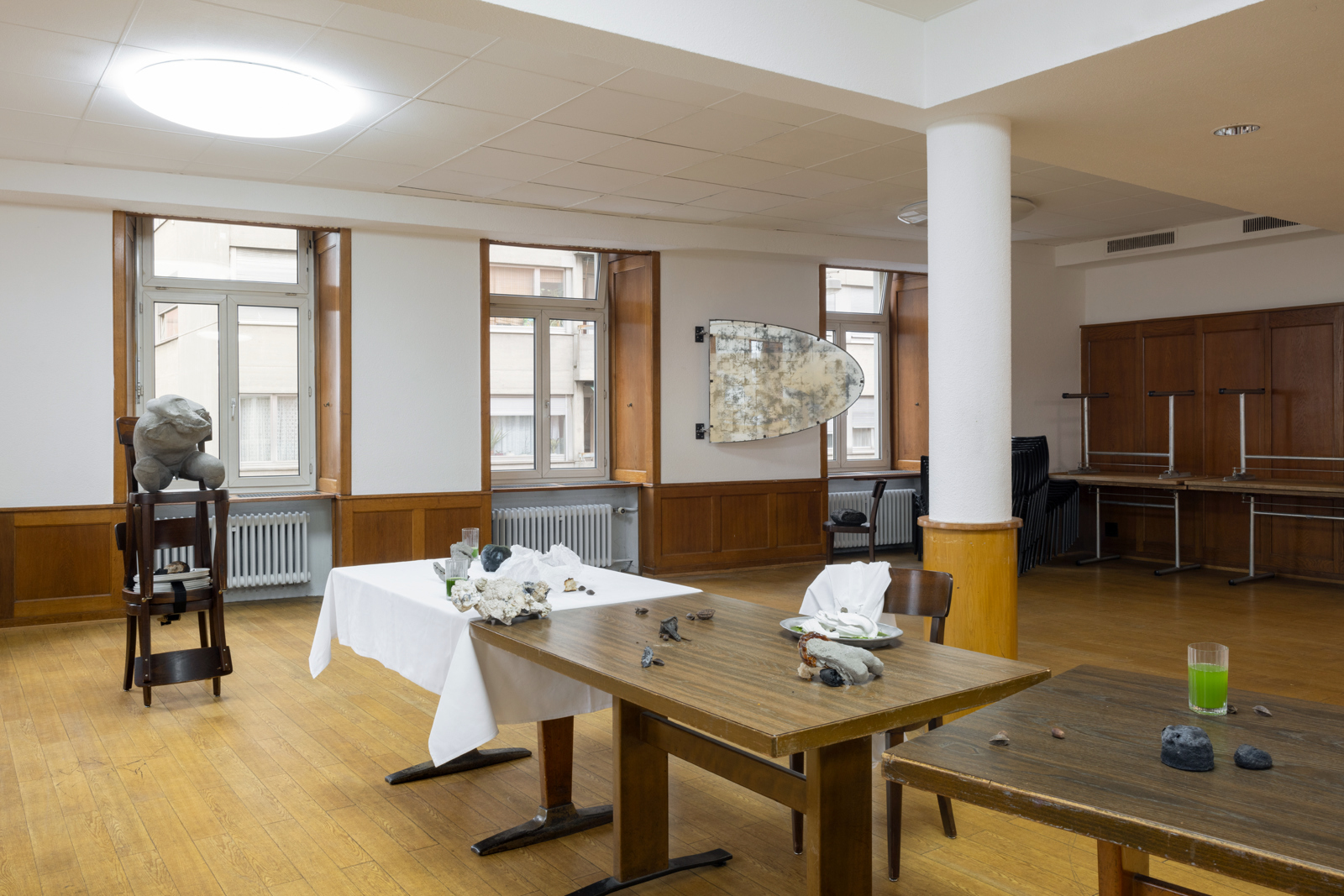
Installation view, Yu Ji at Art Basel Basel Parcours, Hotel Rheinfelderhof, Basel, 2025.
© Yu Ji. Courtesy the Artist, Kiang Malingue and Sadie Coles HQ, London.
Photo: Andrea Rossetti
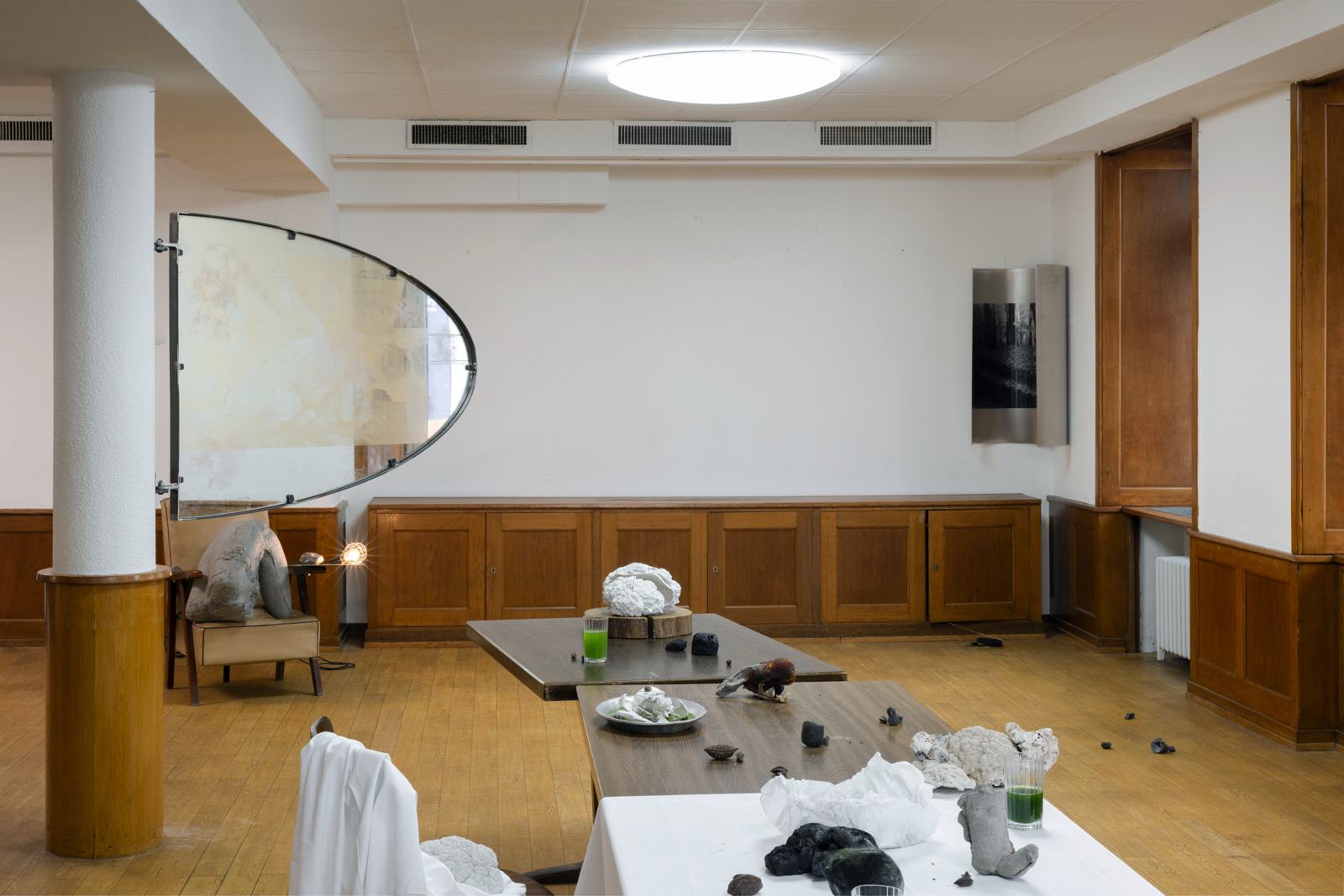
Installation view, Yu Ji at Art Basel Basel Parcours, Hotel Rheinfelderhof, Basel, 2025.
© Yu Ji. Courtesy the Artist, Kiang Malingue and Sadie Coles HQ, London.
Photo: Andrea Rossetti
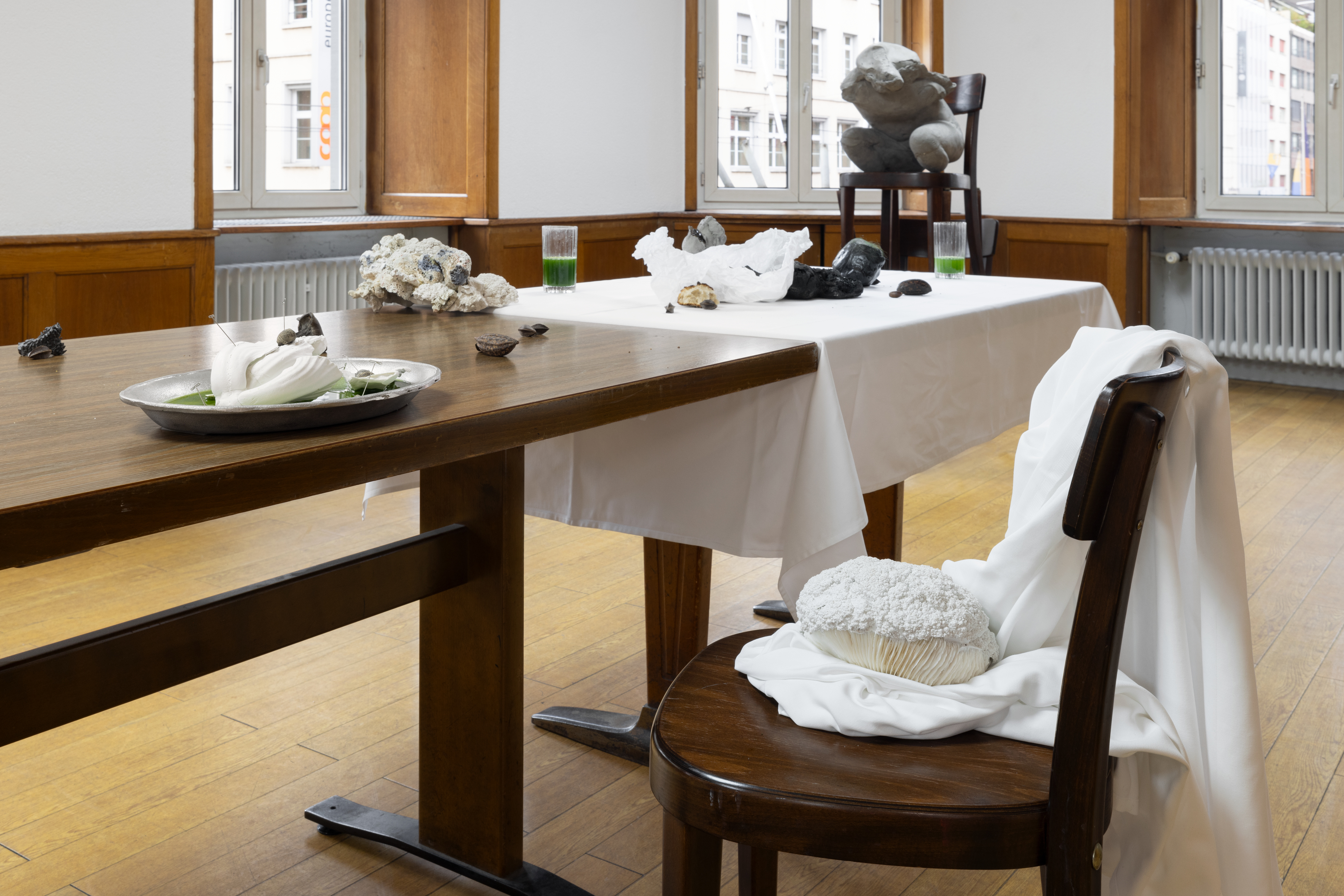
Installation view, Yu Ji at Art Basel Basel Parcours, Hotel Rheinfelderhof, Basel, 2025.
© Yu Ji. Courtesy the Artist, Kiang Malingue and Sadie Coles HQ, London.
Photo: Andrea Rossetti
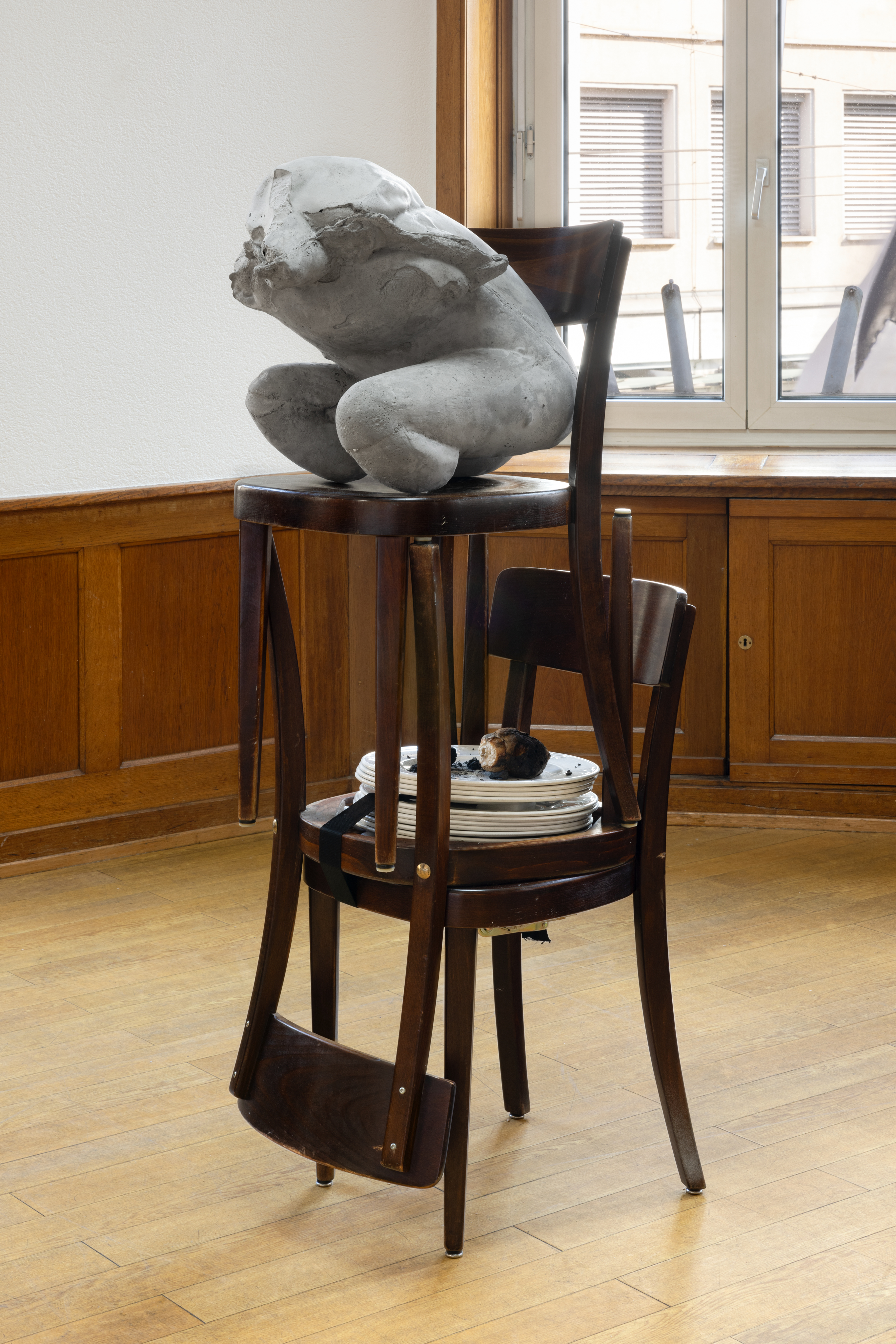
Installation view, Yu Ji at Art Basel Basel Parcours, Hotel Rheinfelderhof, Basel, 2025.
© Yu Ji. Courtesy the Artist, Kiang Malingue and Sadie Coles HQ, London.
Photo: Andrea Rossetti
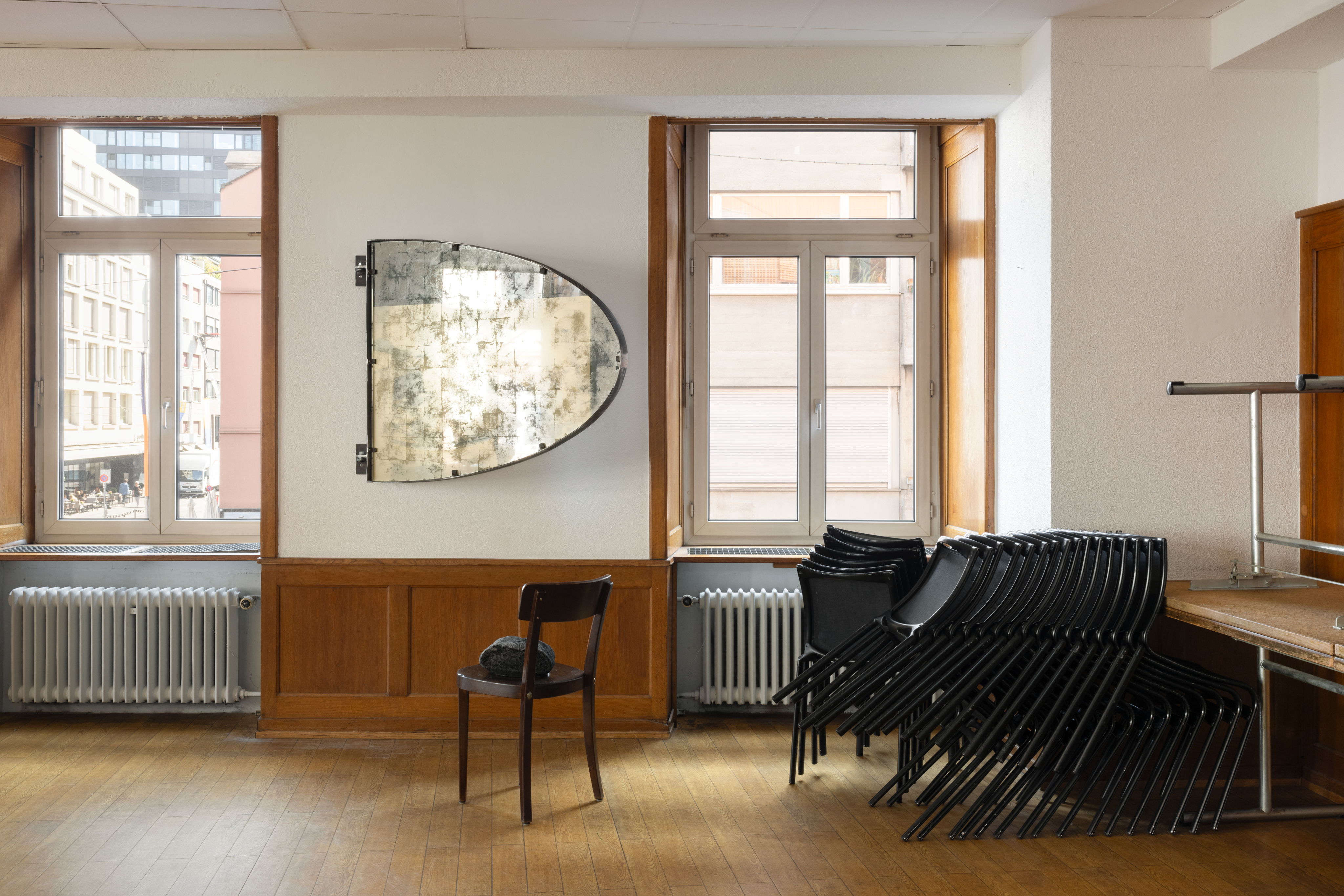
Installation view, Yu Ji at Art Basel Basel Parcours, Hotel Rheinfelderhof, Basel, 2025.
© Yu Ji. Courtesy the Artist, Kiang Malingue and Sadie Coles HQ, London.
Photo: Andrea Rossetti

Installation view at KU Leuven, Belgium. Photo © Marijke ‘T Kindt.

Installation view at KU Leuven, Belgium. Photo © Marijke ‘T Kindt.

Installation view at KU Leuven, Belgium. Photo © Marijke ‘T Kindt.

Installation view, ‘Evaporates’, Kiang Malingue, Hong Kong, 2024.

Installation view, ‘Evaporates’, Kiang Malingue, Hong Kong, 2024.

Cement, cotton gauze, UV print, resin, lead, iron
18 x 20 x 20 cm
Version 1/5
Installation view, ‘Evaporates’, Kiang Malingue, Hong Kong, 2024.

Cement, iron
13 x 14 x 15 cm
Installation view, ‘Evaporates’, Kiang Malingue, Hong Kong, 2024.

Cement, iron
13 x 14 x 15 cm
Installation view, ‘Evaporates’, Kiang Malingue, Hong Kong, 2024.

Concrete tile, lead
Version 2/4
Installation view, ‘Evaporates’, Kiang Malingue, Hong Kong, 2024.

Concrete tile, lead
Version 4/4
Installation view, ‘Evaporates’, Kiang Malingue, Hong Kong, 2024.
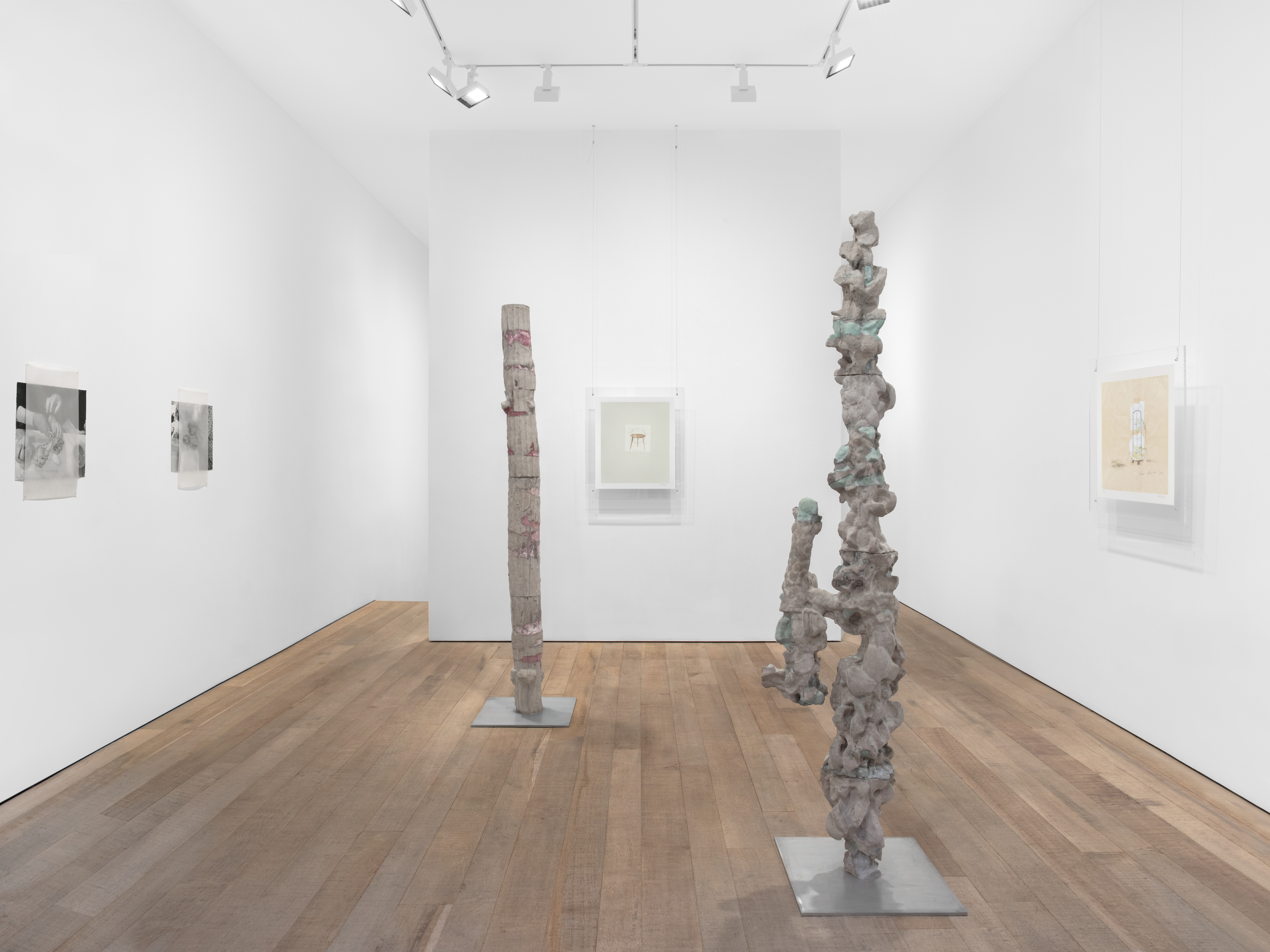
‘Protrude’, Sadie Coles HQ, London, 2024
Credit: © Yu Ji. Courtesy the Artist and Sadie Coles HQ, London. Photo: Katie
Morrison
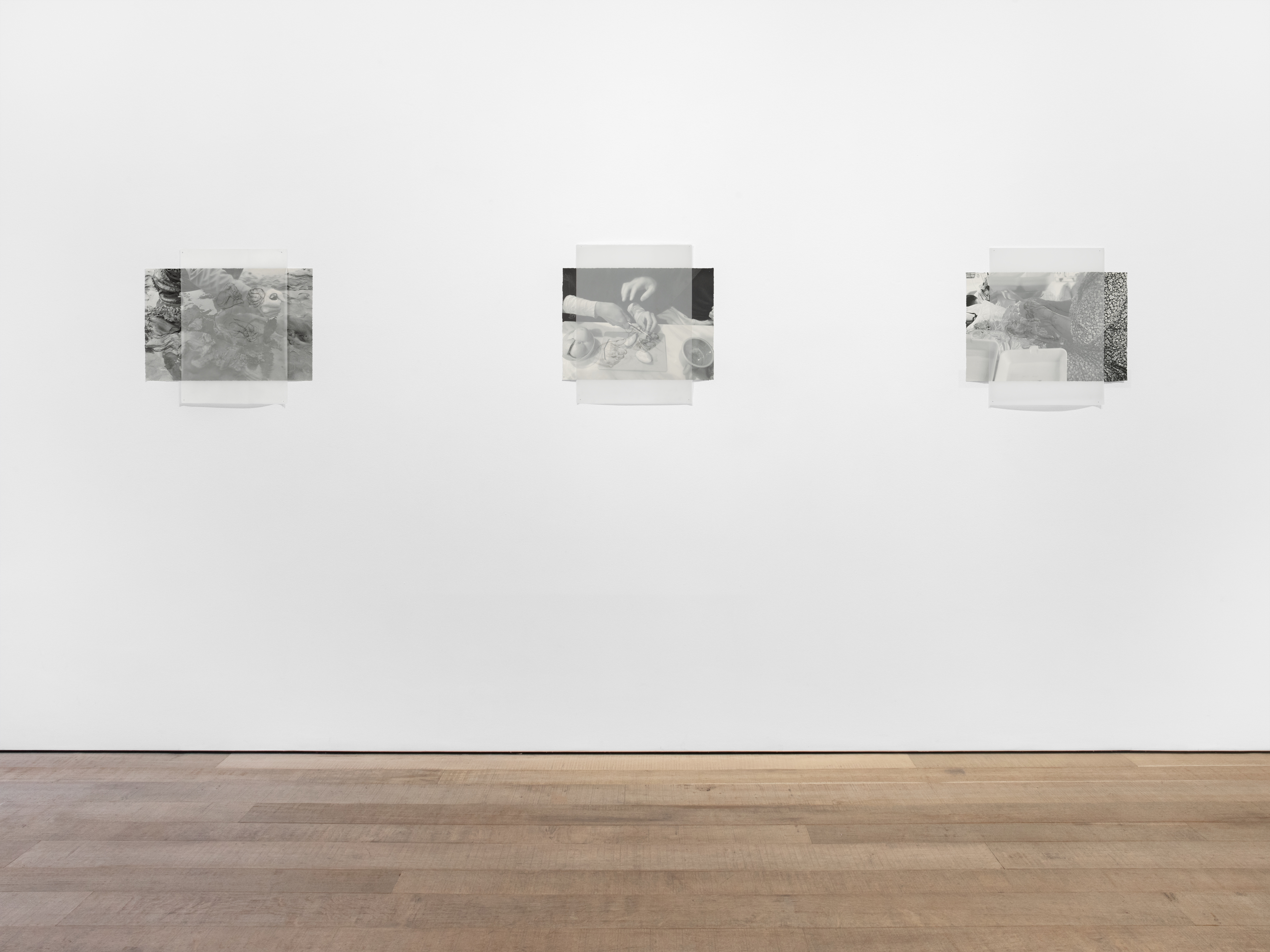
‘Protrude’, Sadie Coles HQ, London, 2024
Credit: © Yu Ji. Courtesy the Artist and Sadie Coles HQ, London. Photo: Katie
Morrison
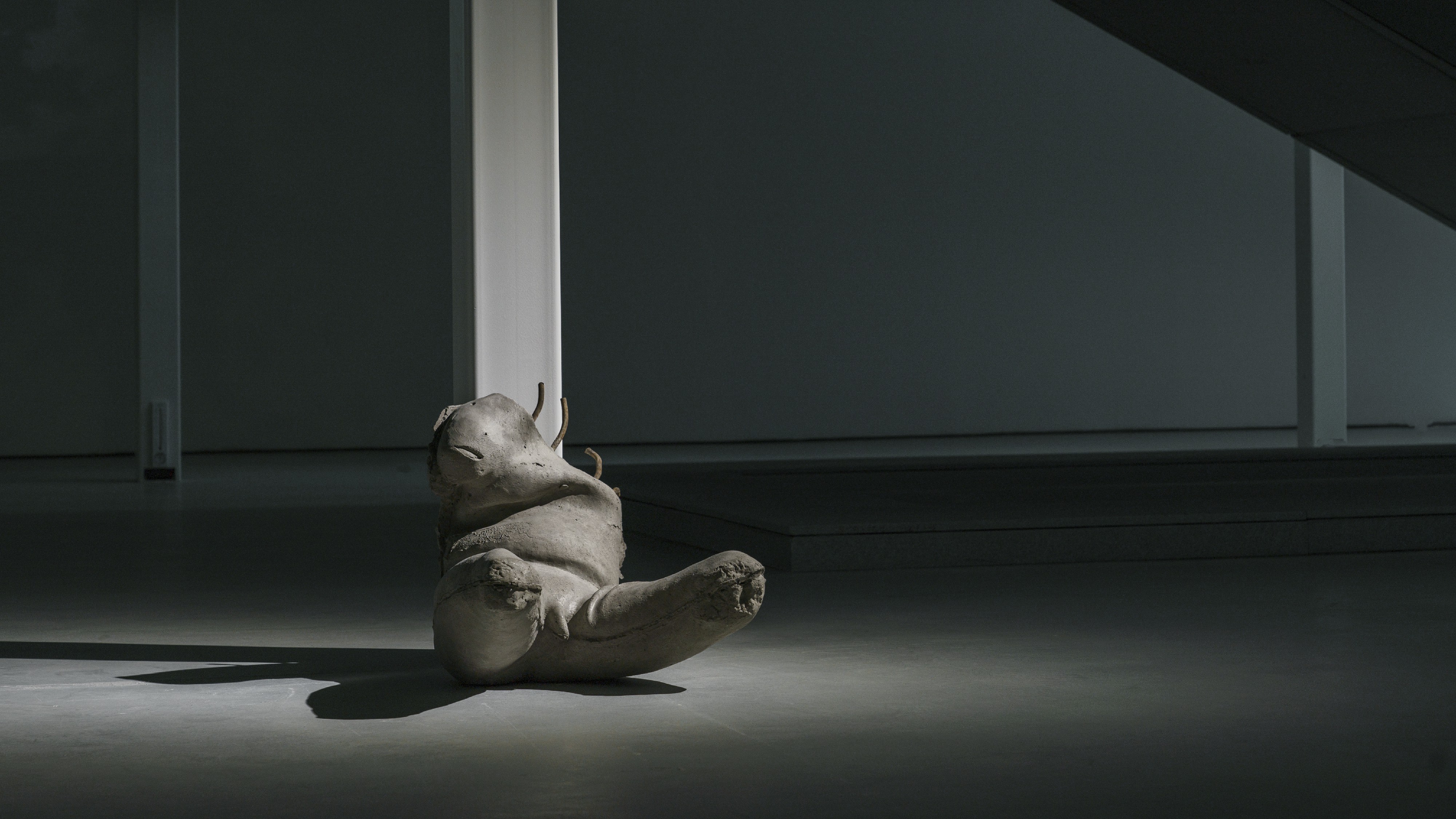
Installation view, Yu Ji, Flesh in Stone – Rema Rema 2202, 2022.
Cement, steel bar; 68 x 50 x 50 cm.
ICA at NYU Shanghai, 12 October 2023–6 January 2024.
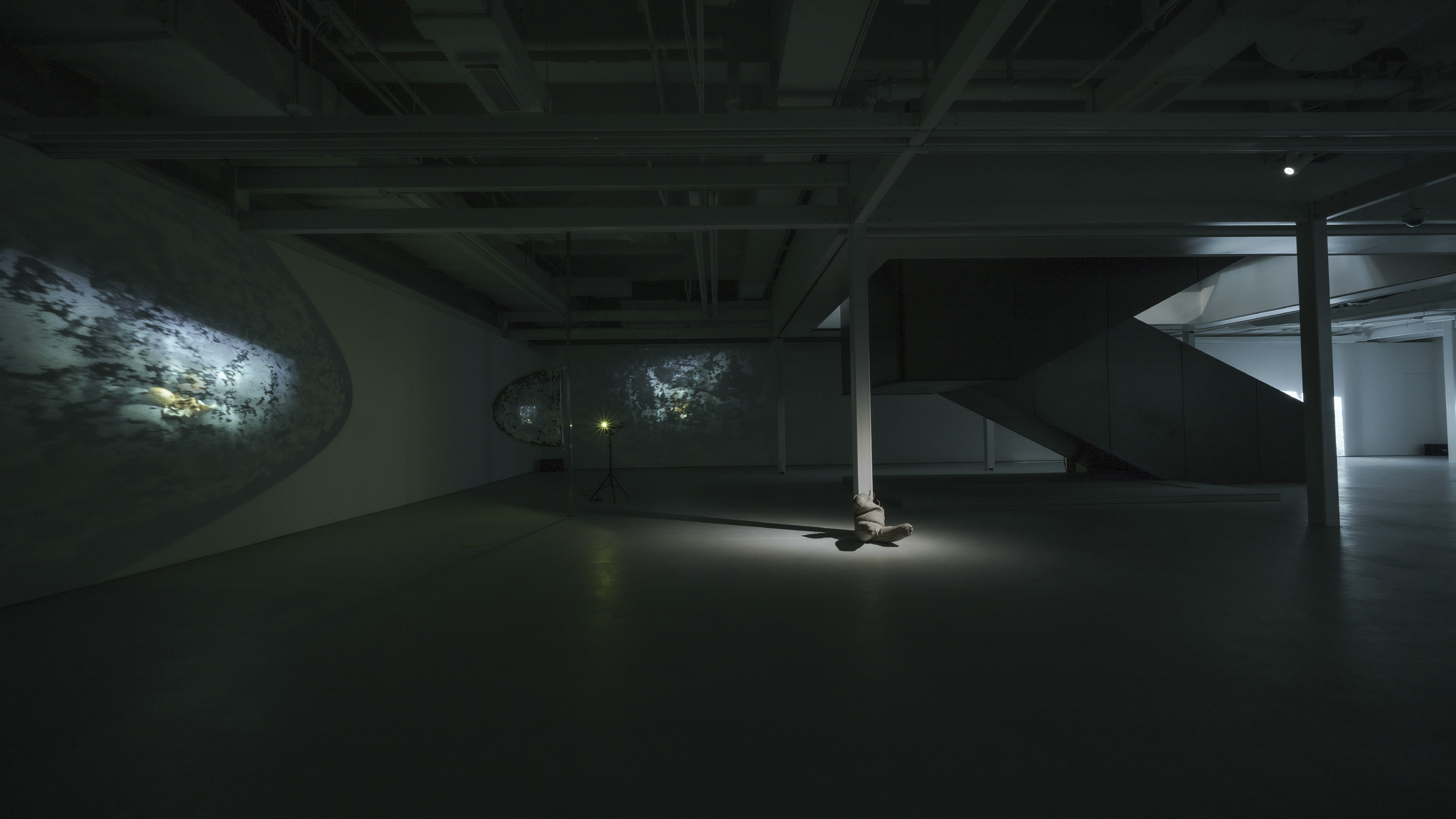
Installation view, We the singular in multiple ghosts. I the multiple as parts of whole.
ICA at NYU Shanghai, 12 October 2023–6 January 2024.
PHOTO: Zhu Zhenyu.
Courtesy of the ICA at NYU Shanghai.
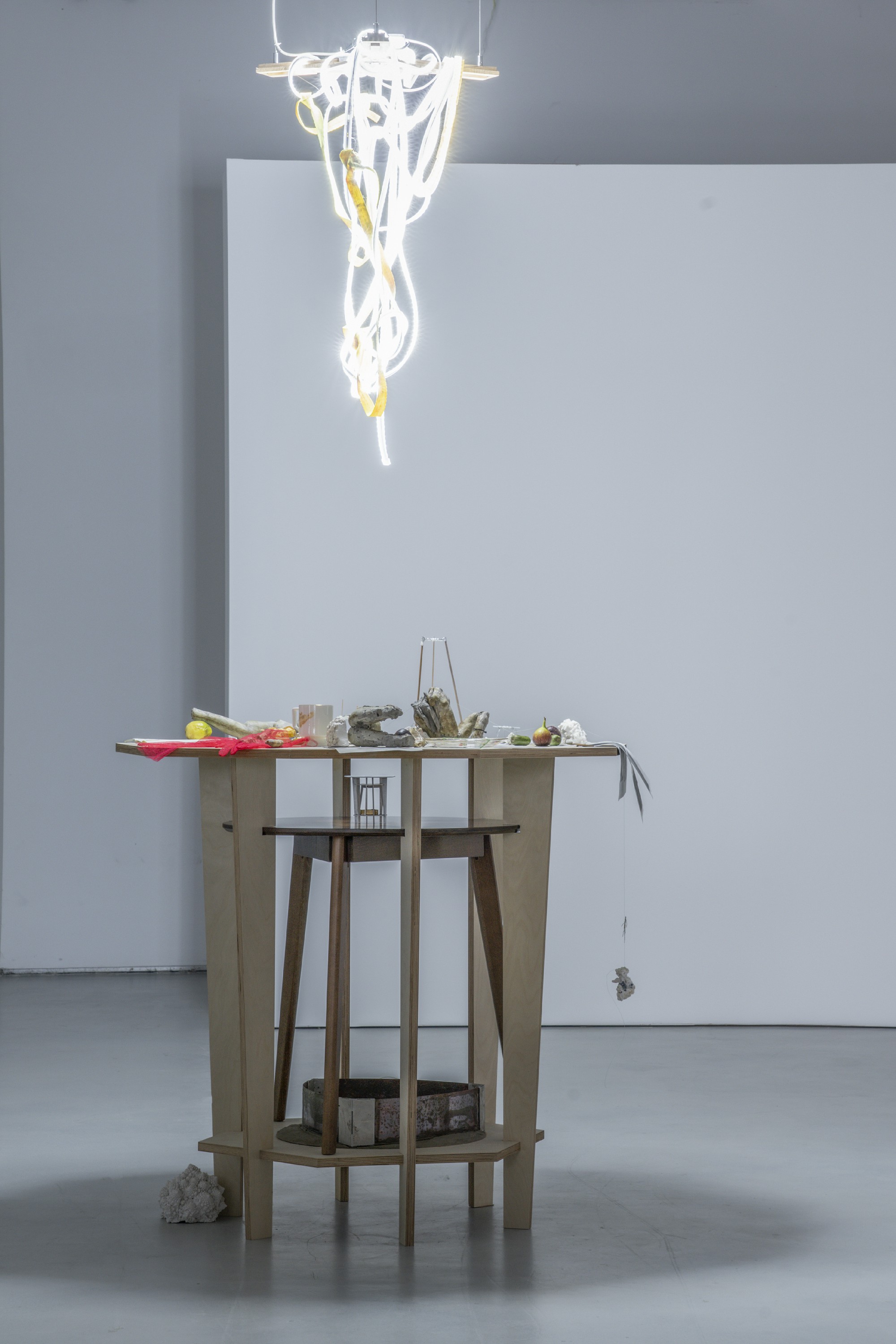
Installation view, We the singular in multiple ghosts. I the multiple as parts of whole.
ICA at NYU Shanghai, 12 October 2023–6 January 2024.
PHOTO: Zhu Zhenyu.
Courtesy of the ICA at NYU Shanghai.
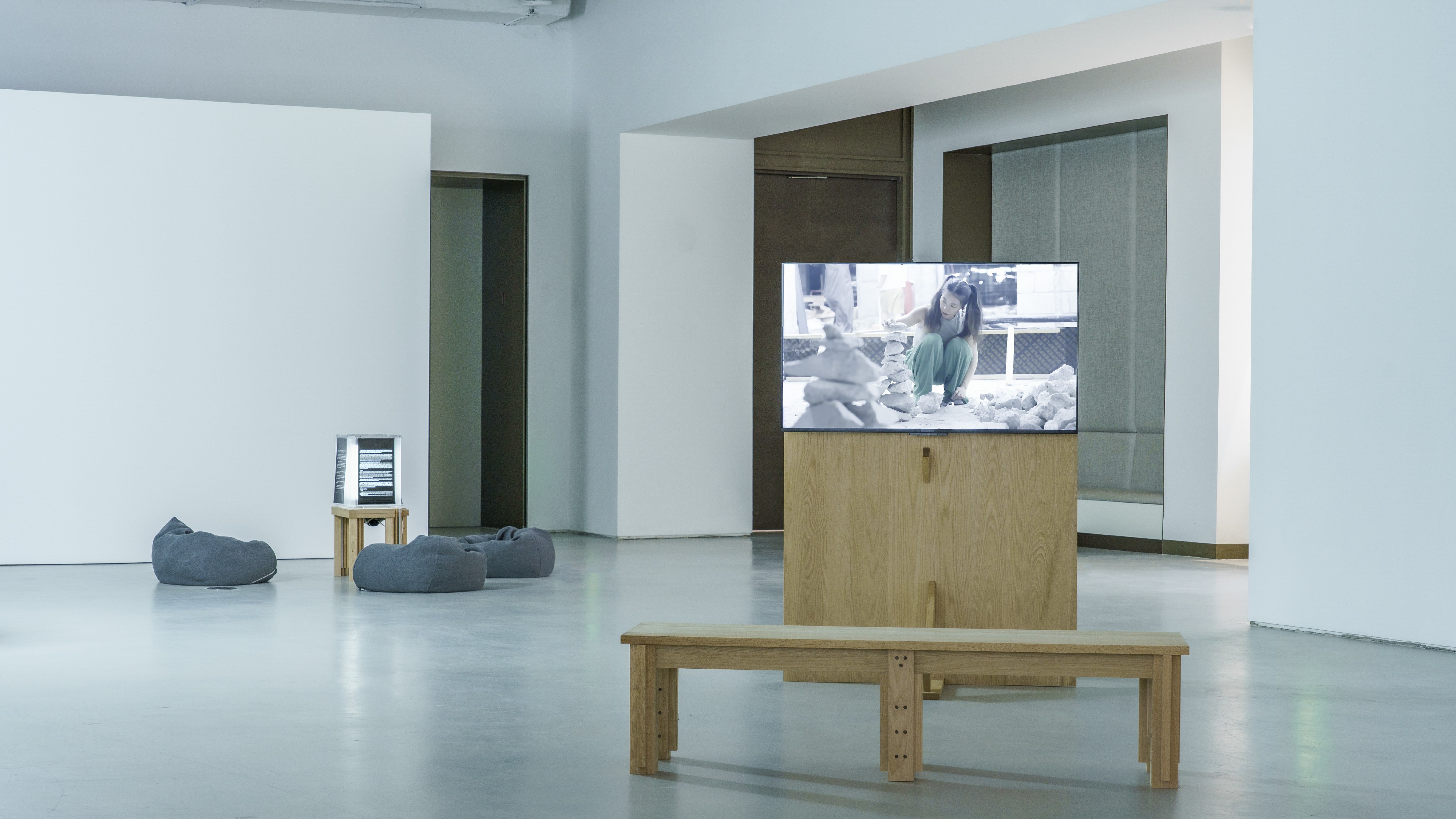
Installation view, We the singular in multiple ghosts. I the multiple as parts of whole.
ICA at NYU Shanghai, 12 October 2023–6 January 2024.
PHOTO: Zhu Zhenyu.
Courtesy of the ICA at NYU Shanghai.
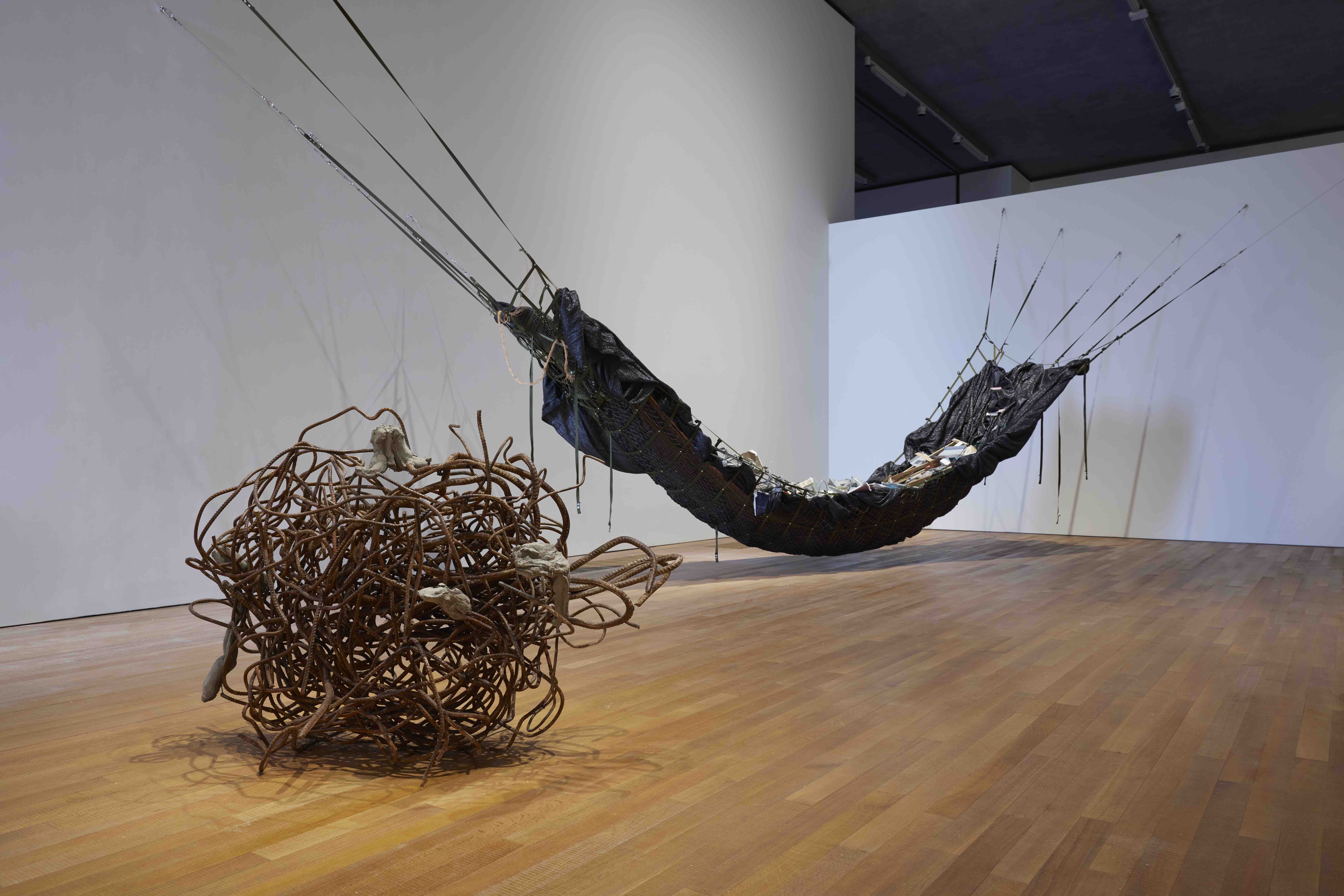
Installation view of Sigg Prize 2023
exhibition, 2023.
Photo: Dan Leung.
Courtesy of M+, Hong Kong.
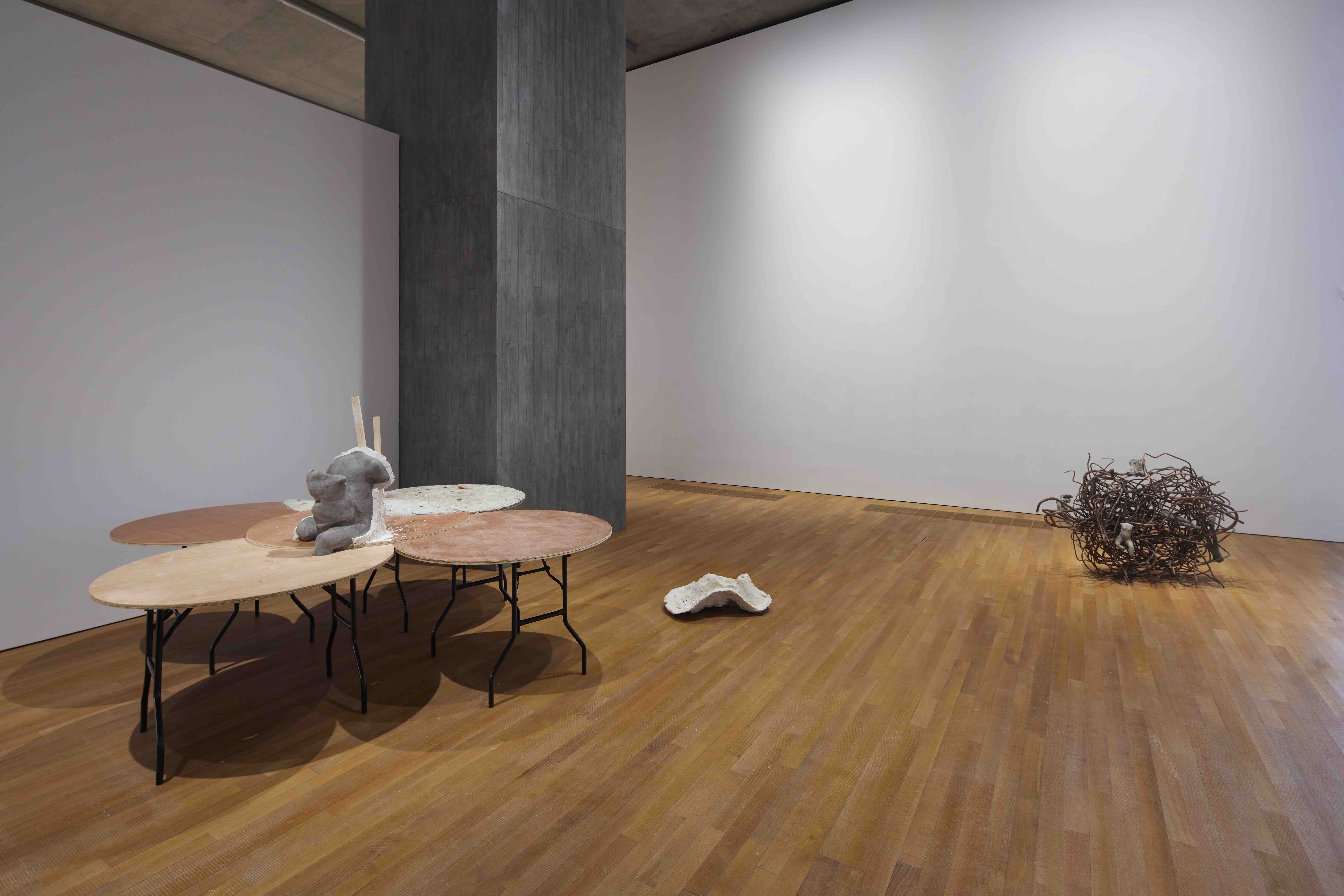
Installation view of Sigg Prize 2023
exhibition, 2023.
Photo: Dan Leung.
Courtesy of M+, Hong Kong.
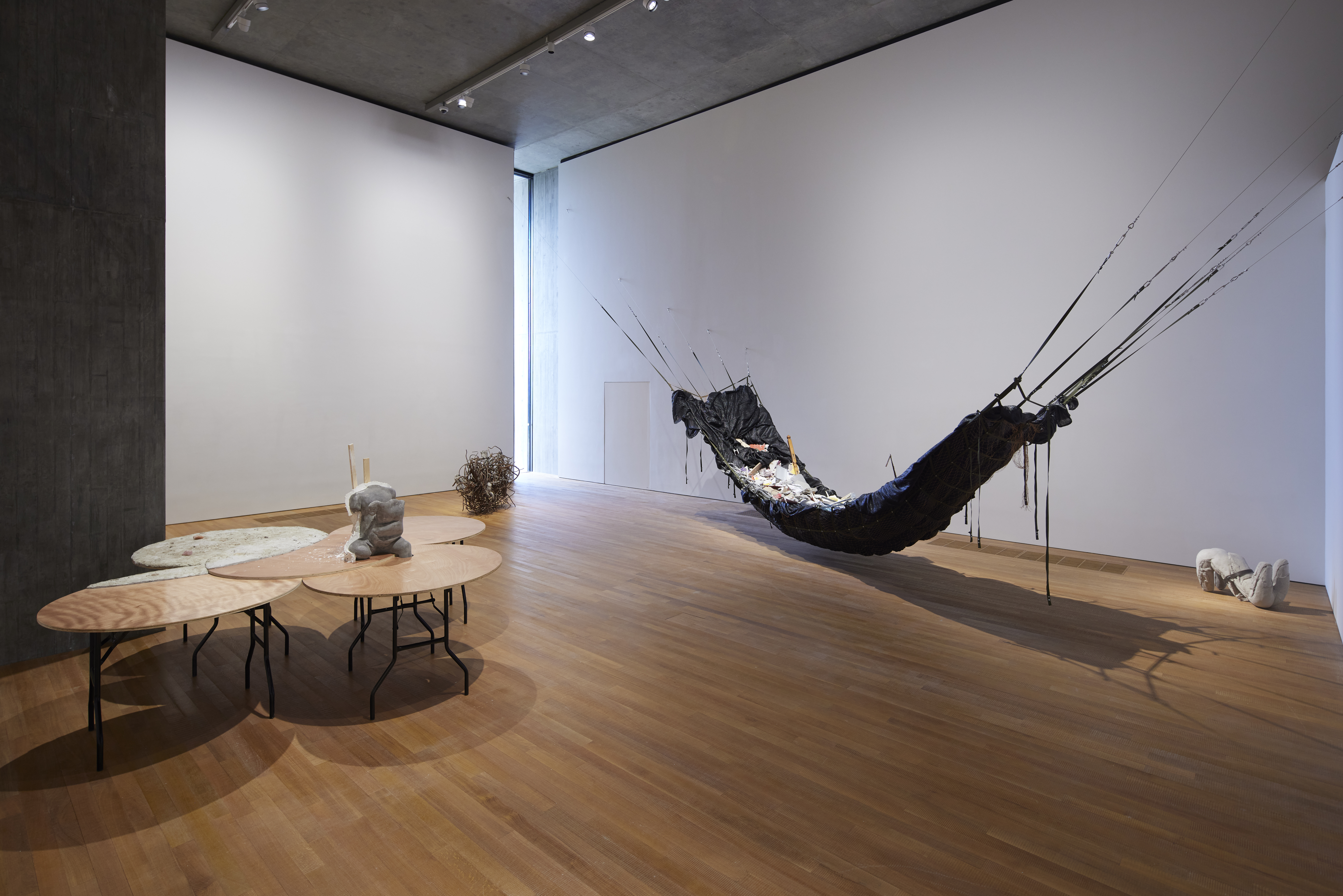
Installation view of Sigg Prize 2023
exhibition, 2023.
Photo: Dan Leung.
Courtesy of M+, Hong Kong.
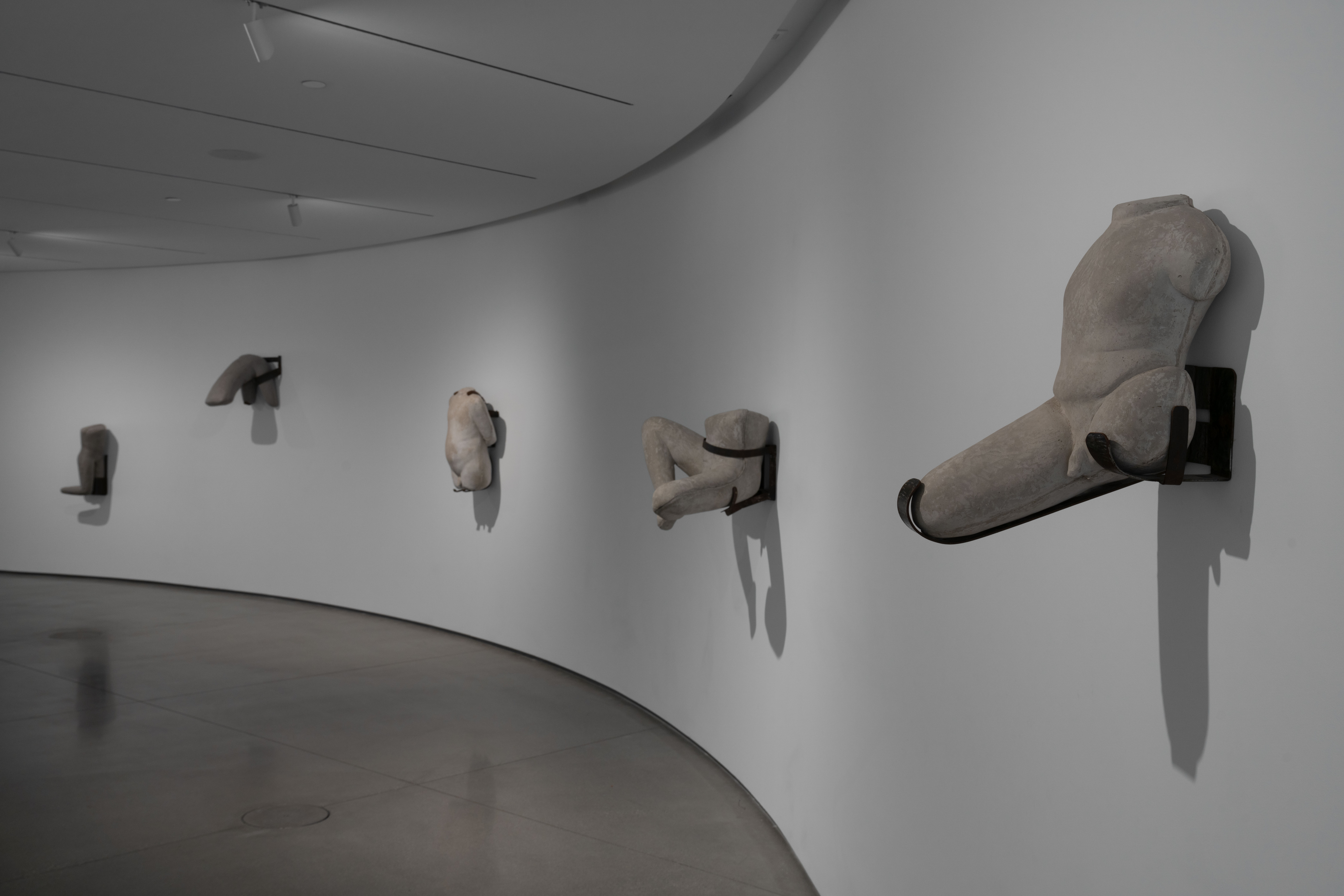
Installation view, ‘Yu Ji: A Guest, A Host, A Ghost’, Orange County Museum of Art, 2023.
Image courtesy of Orange County Museum of Art.
Photo: Yubo Dong, ofstudio.
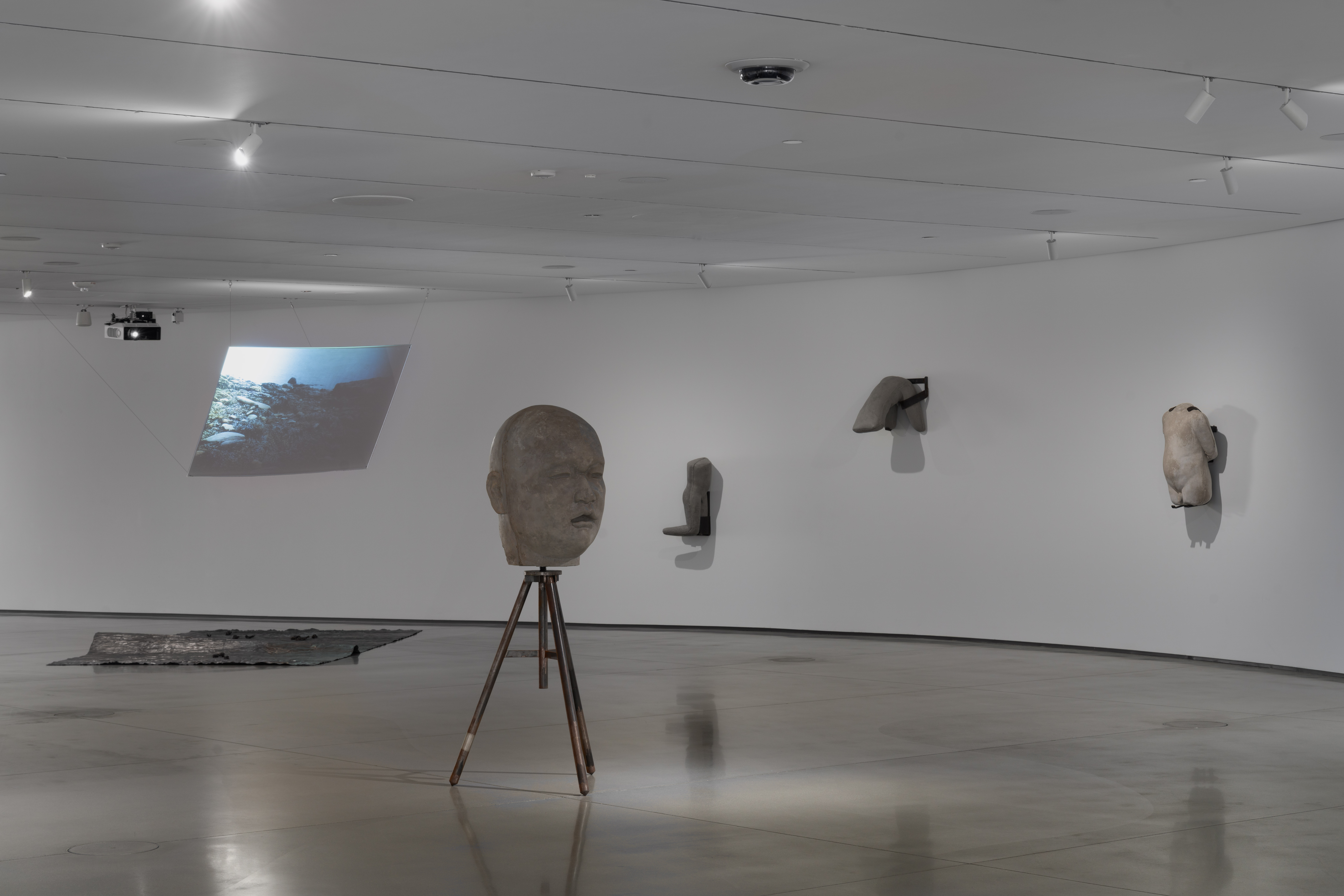
Installation view, ‘Yu Ji: A Guest, A Host, A Ghost’, Orange County Museum of Art, 2023.
Image courtesy of Orange County Museum of Art.
Photo: Yubo Dong, ofstudio.
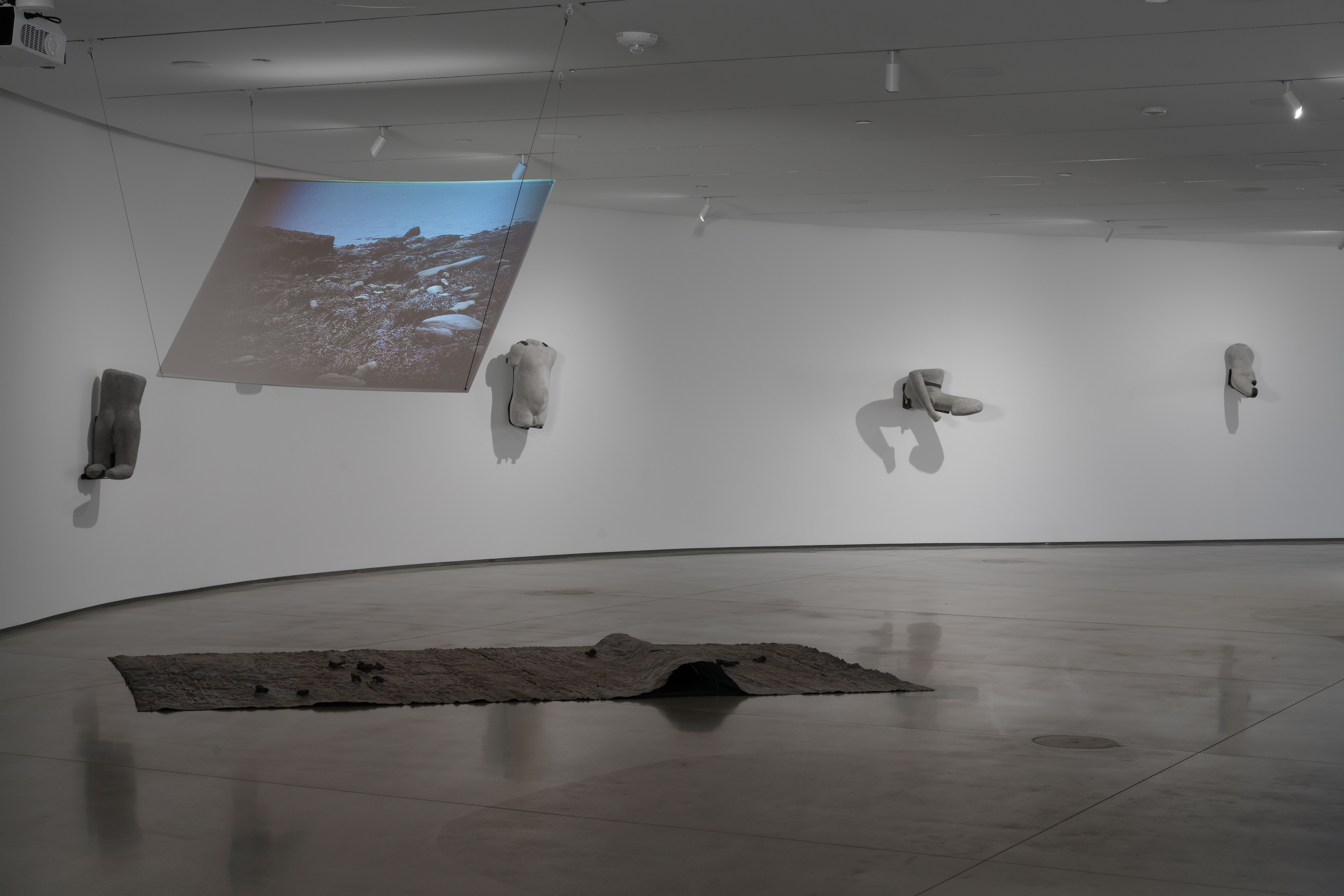
Installation view, ‘Yu Ji: A Guest, A Host, A Ghost’, Orange County Museum of Art, 2023.
Image courtesy of Orange County Museum of Art.
Photo: Yubo Dong, ofstudio.
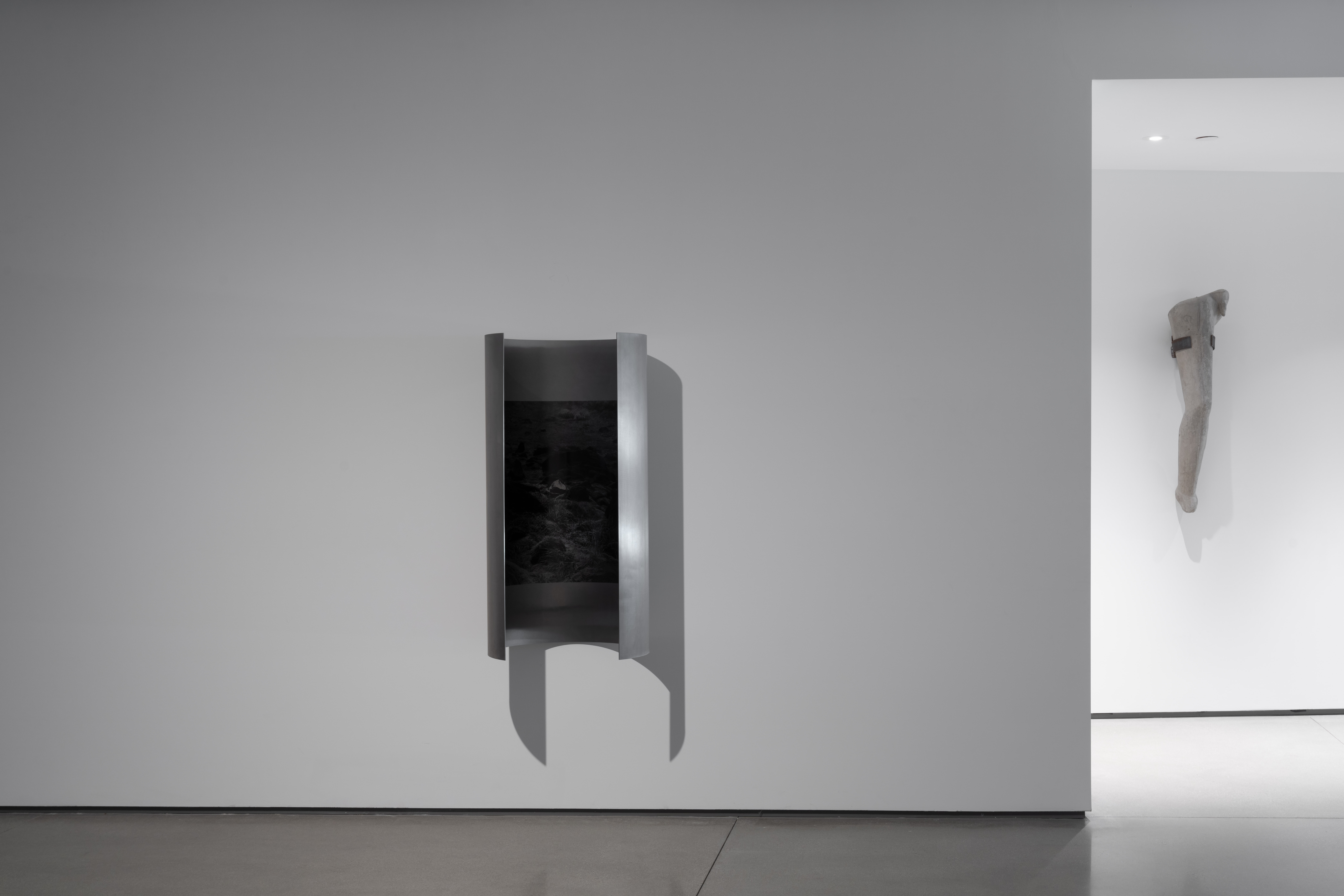
Installation view, ‘Yu Ji: A Guest, A Host, A Ghost’, Orange County Museum of Art, 2023.
Image courtesy of Orange County Museum of Art.
Photo: Yubo Dong, ofstudio.
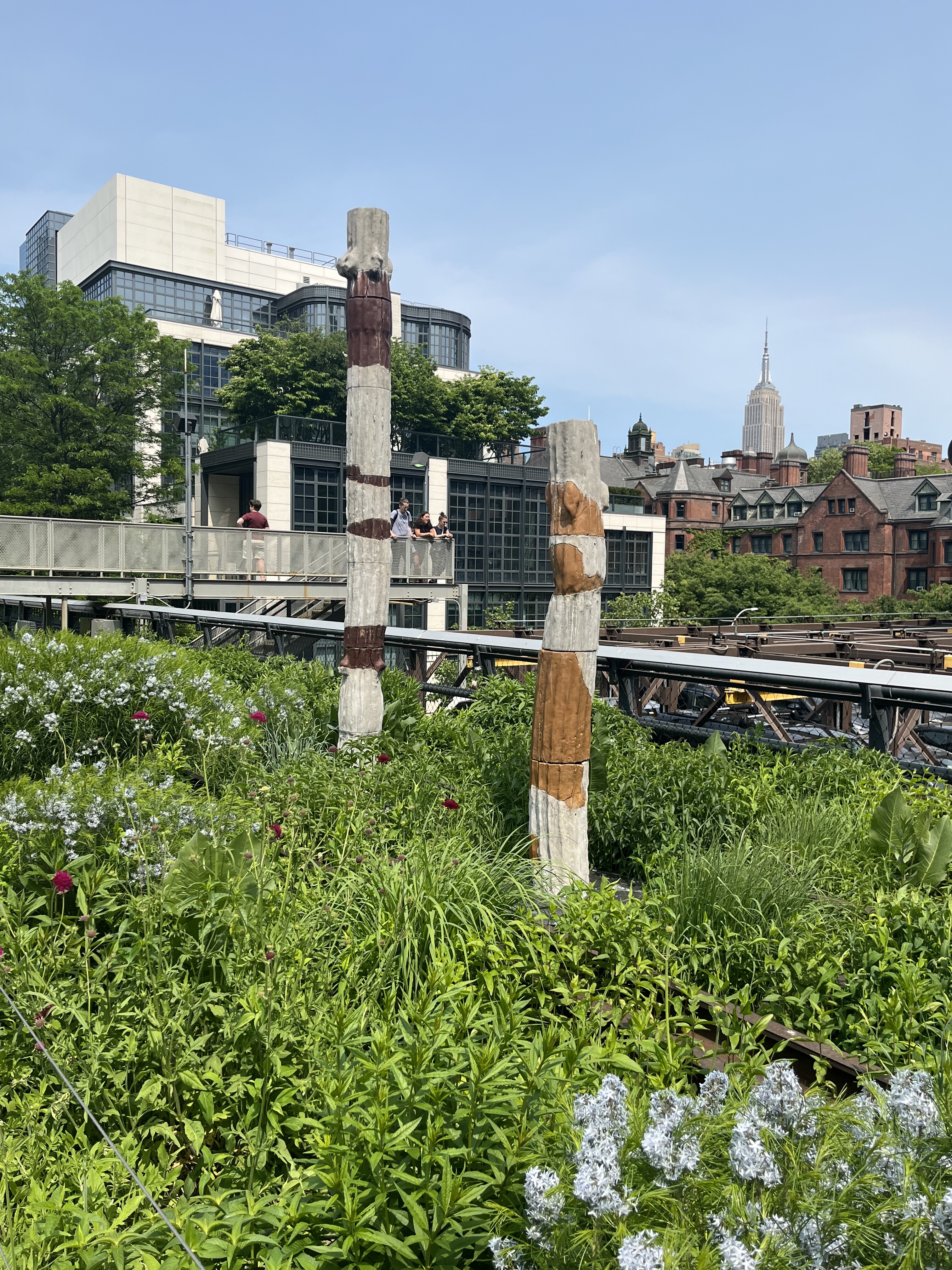
Concrete, rebar, soap
Tall column: 350 cm (H) , 27 cm (D)
Short column: 200 cm (H), 27 cm (27)
Installation view, the High Line at 20th Street, New York, U.S.A.

“Yu Ji: Spontaneous Decisions II”, Centre Pompidou x West Bund Museum Project.
Performance and installation view at West Bund Museum, 2021.
Image courtesy of West Bund Museum.
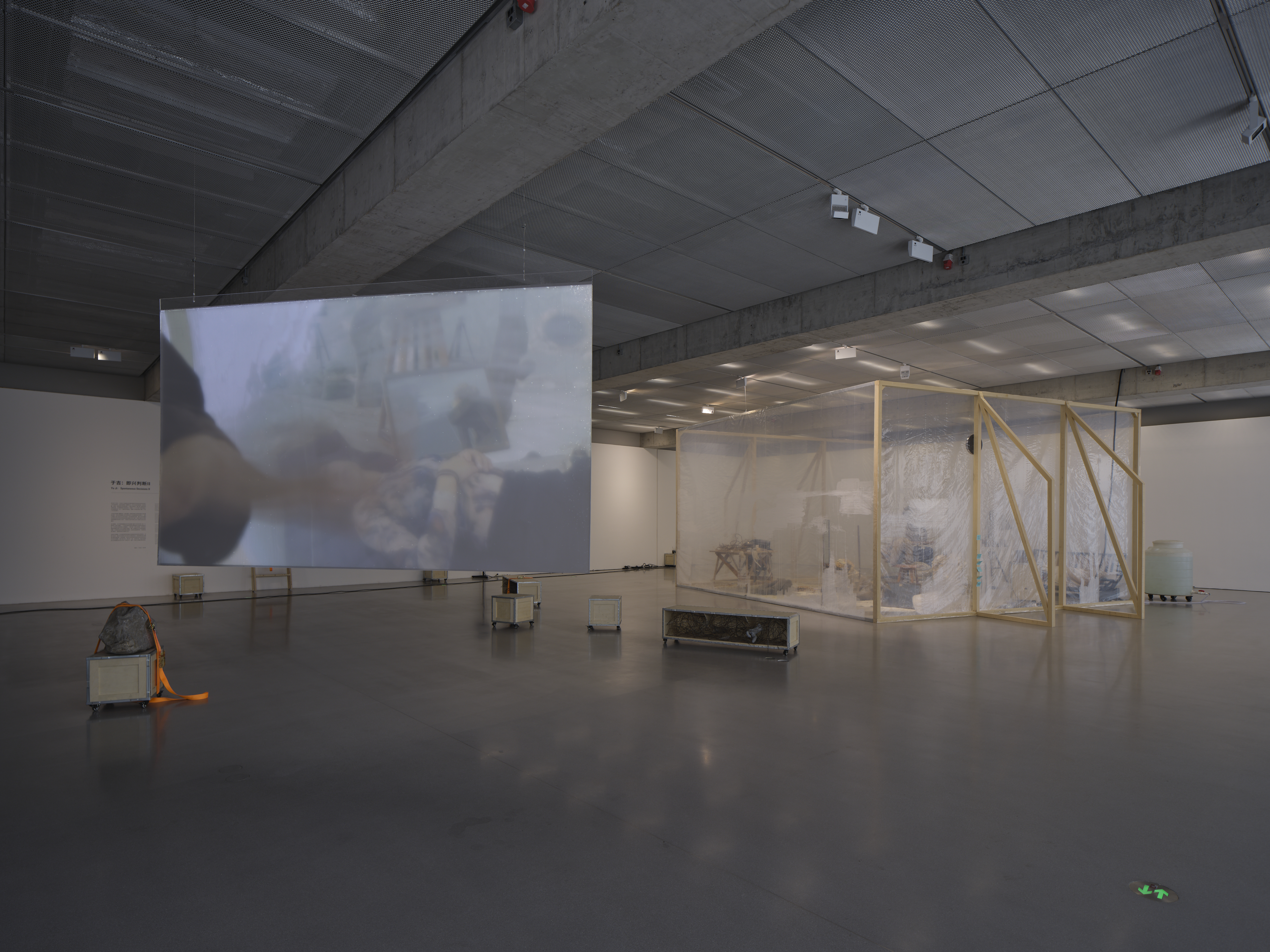
Installation view of “Yu Ji: Spontaneous Decisions II”, Centre Pompidou x West Bund Museum Project.
West Bund Museum, Shanghai, China, 2021.
Photo by Zhang Hong.
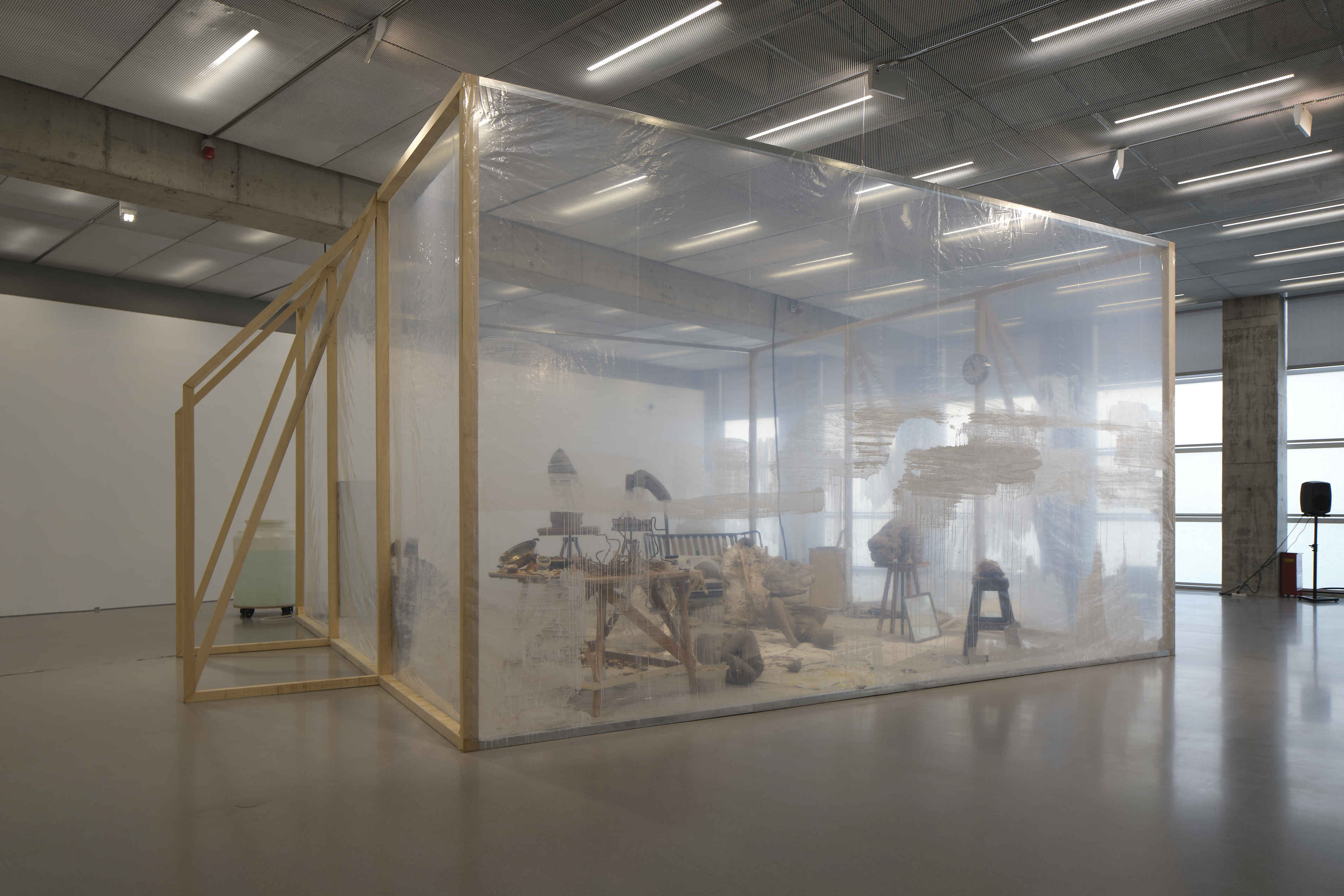
Installation view of “Yu Ji: Spontaneous Decisions II”, Centre Pompidou x West Bund Museum Project.
West Bund Museum, Shanghai, China, 2021.
Photo by Zhang Hong.
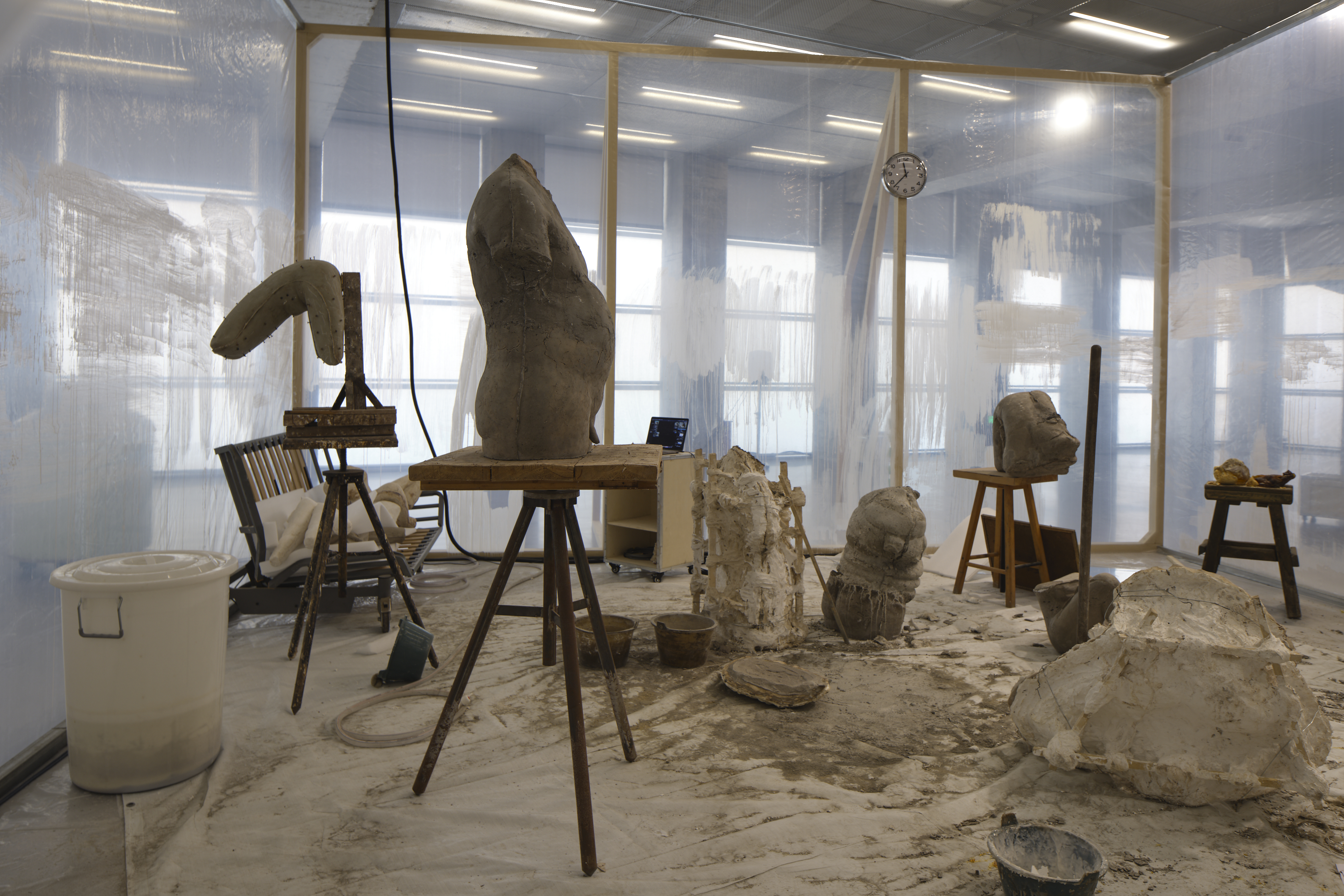
Installation view of “Yu Ji: Spontaneous Decisions II”, Centre Pompidou x West Bund Museum Project.
West Bund Museum, Shanghai, China, 2021.
Photo by Zhang Hong.
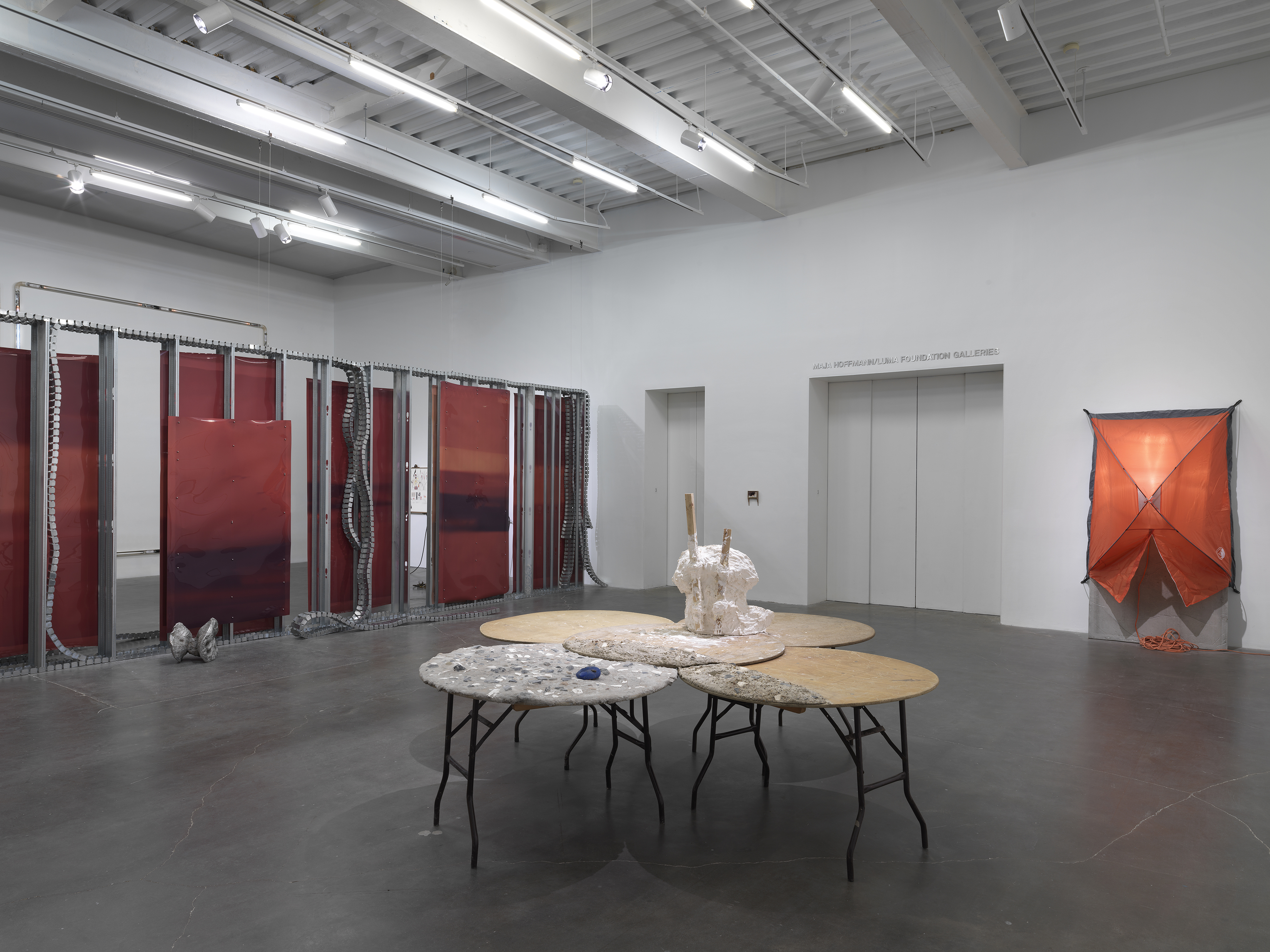
Installation view of 2021 New Museum Triennial: Soft Water Hard Stone, New Museum, New York, 2021.
Image courtesy of New Museum, photo by Dario Lasagni.
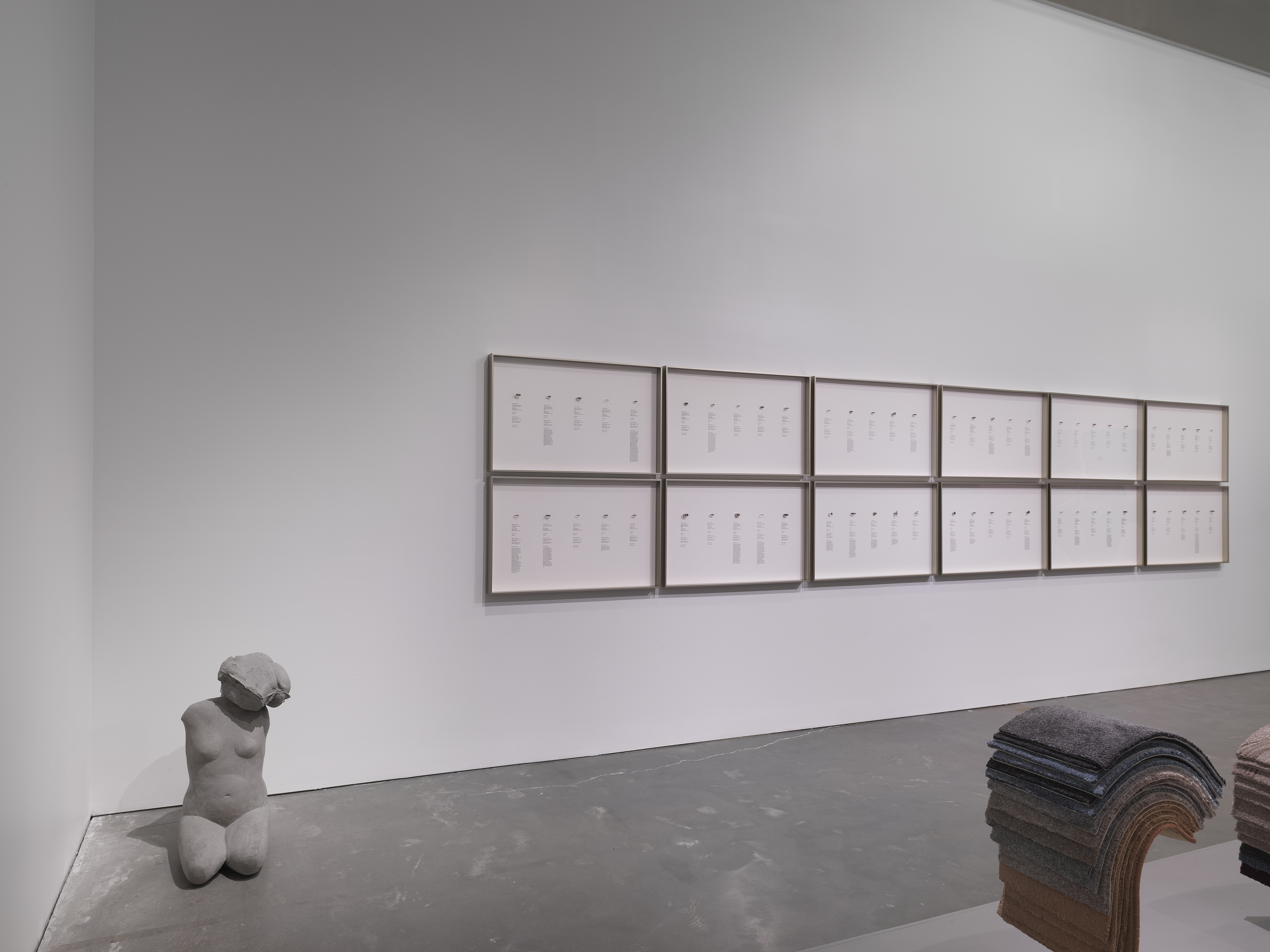
Installation view of 2021 New Museum Triennial: Soft Water Hard Stone, New Museum, New York, 2021.
Image courtesy of New Museum, photo by Dario Lasagni.
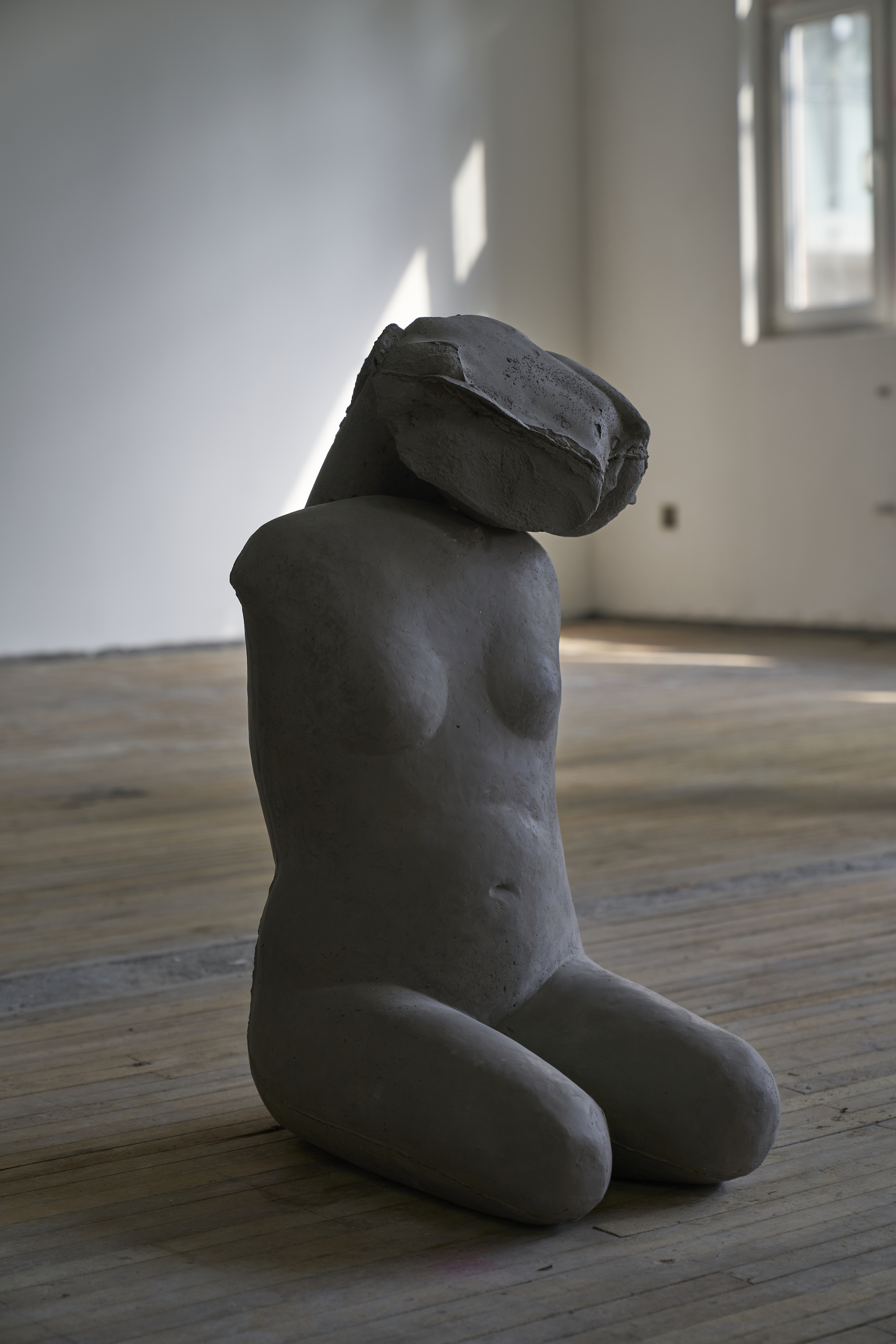
Cement, sand, metal
Overall: 75 x 45 x 65 cm
Upper part: 40 x 30 x 25 cm
Lower part: 35 x 55 x 60 cm
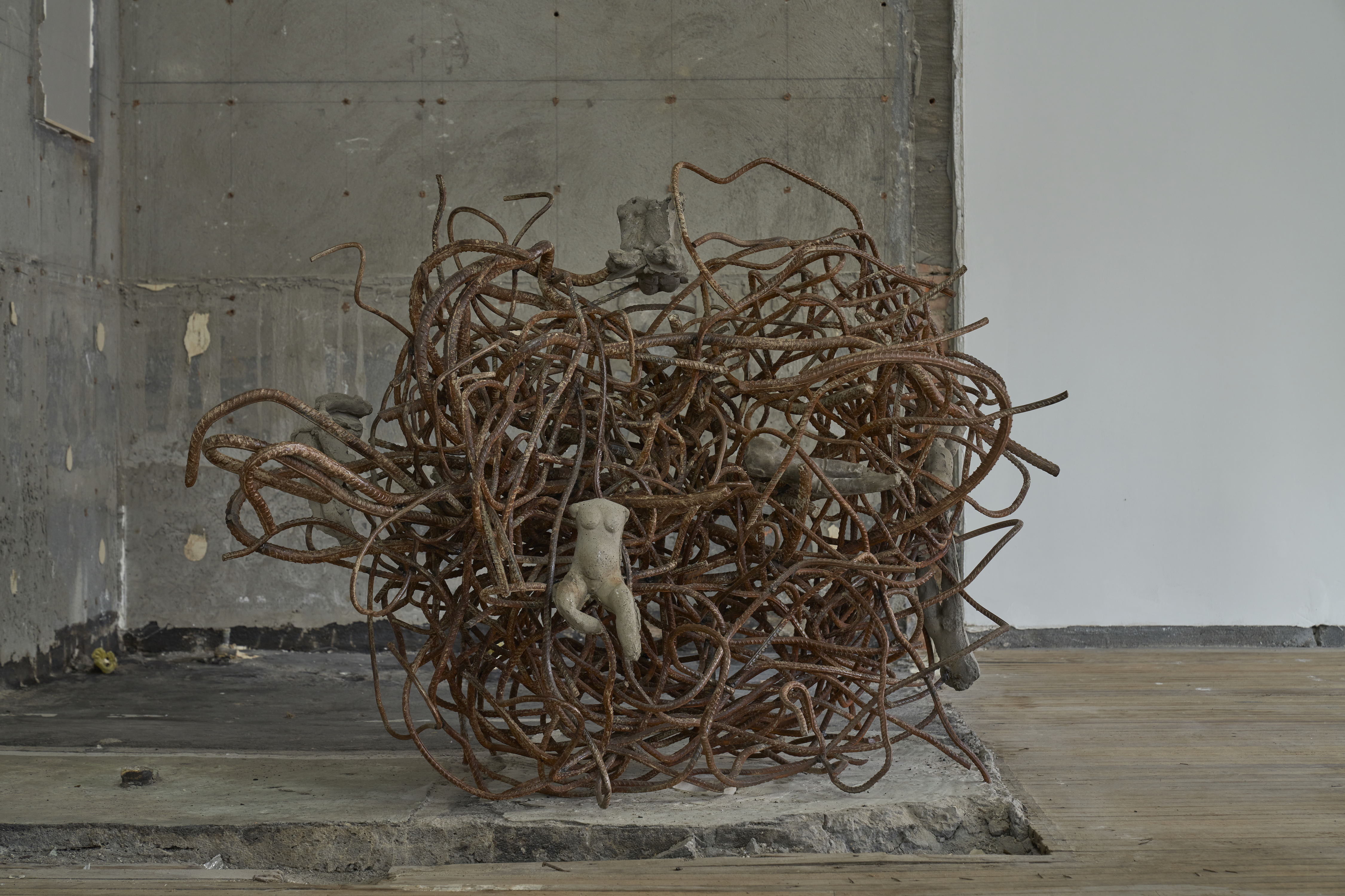
Cement, sand, iron, deformed steel bar
110 x 155 x 65 cm
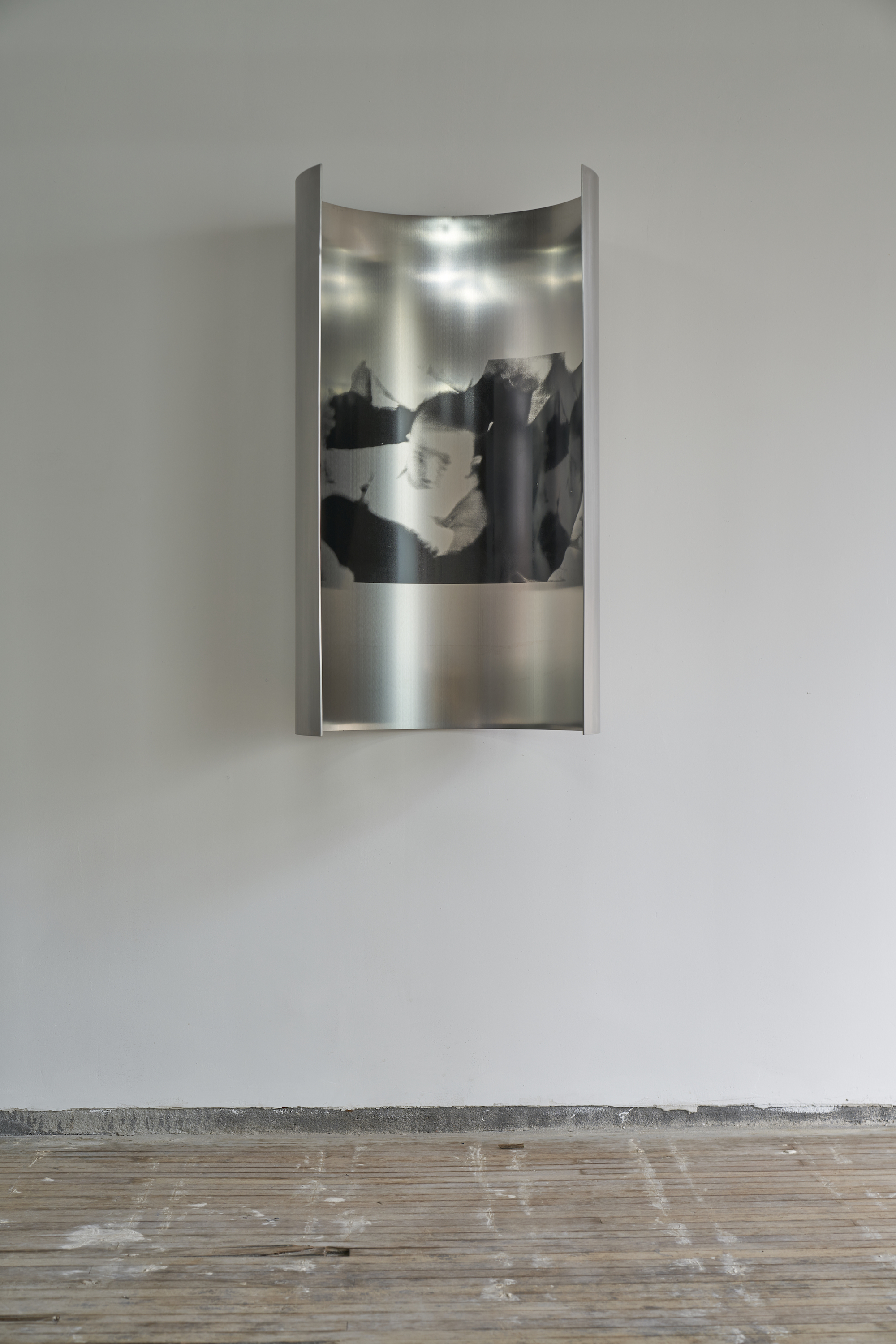
Stainless steel, silkscreen print
100 x 55 x 43 cm
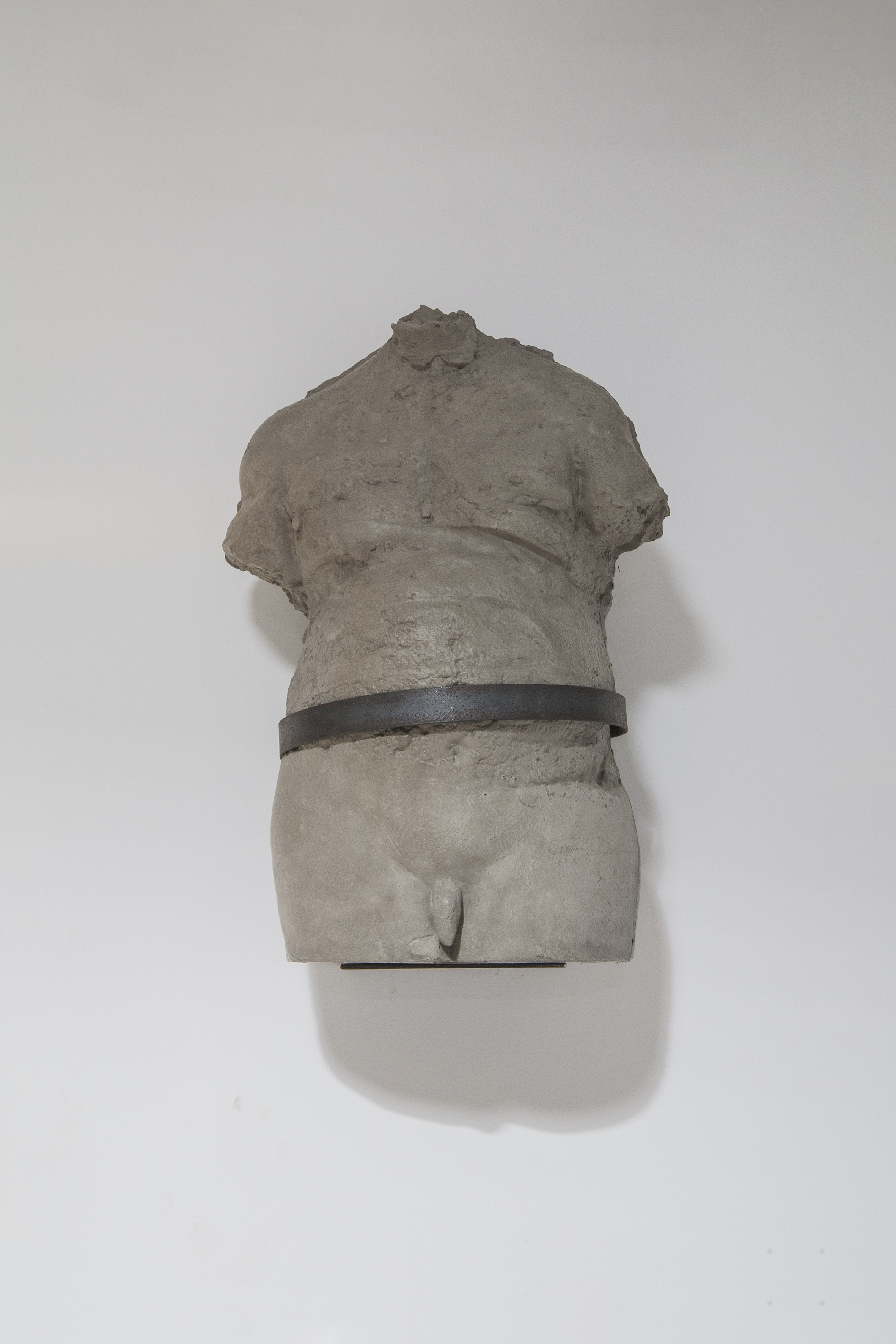
Cement, iron
65 x 40 x 33 cm

in ‘Forager’, Avenue Apartments, Tongren Road, Shanghai, China, 2020

in ‘Forager’, Avenue Apartments, Tongren Road, Shanghai, China, 2020

in ‘Forager’, Avenue Apartments, Tongren Road, Shanghai, China, 2020

in ‘Forager’, Avenue Apartments, Tongren Road, Shanghai, China, 2020
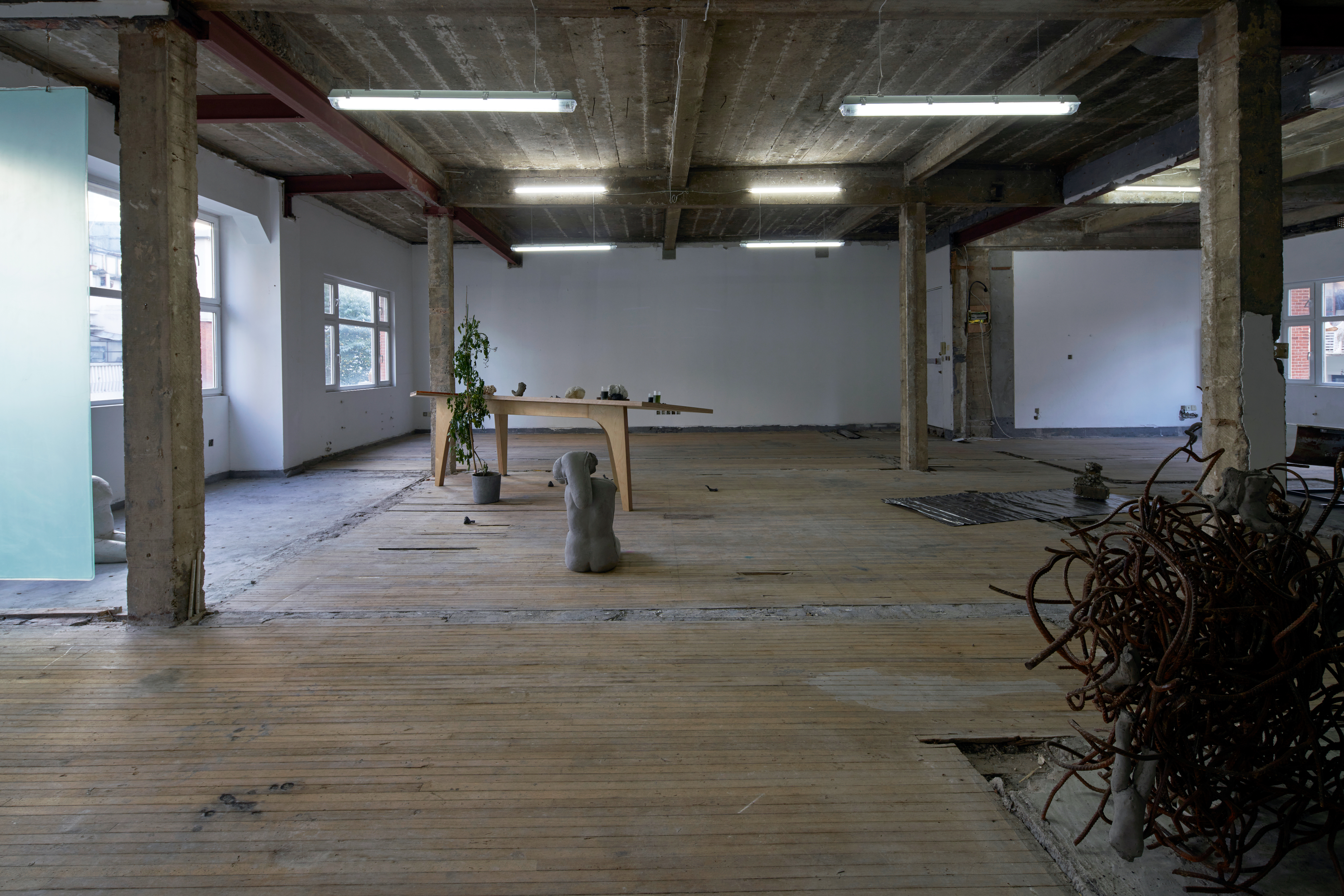
in ‘Forager’, Avenue Apartments, Tongren Road, Shanghai, China, 2020
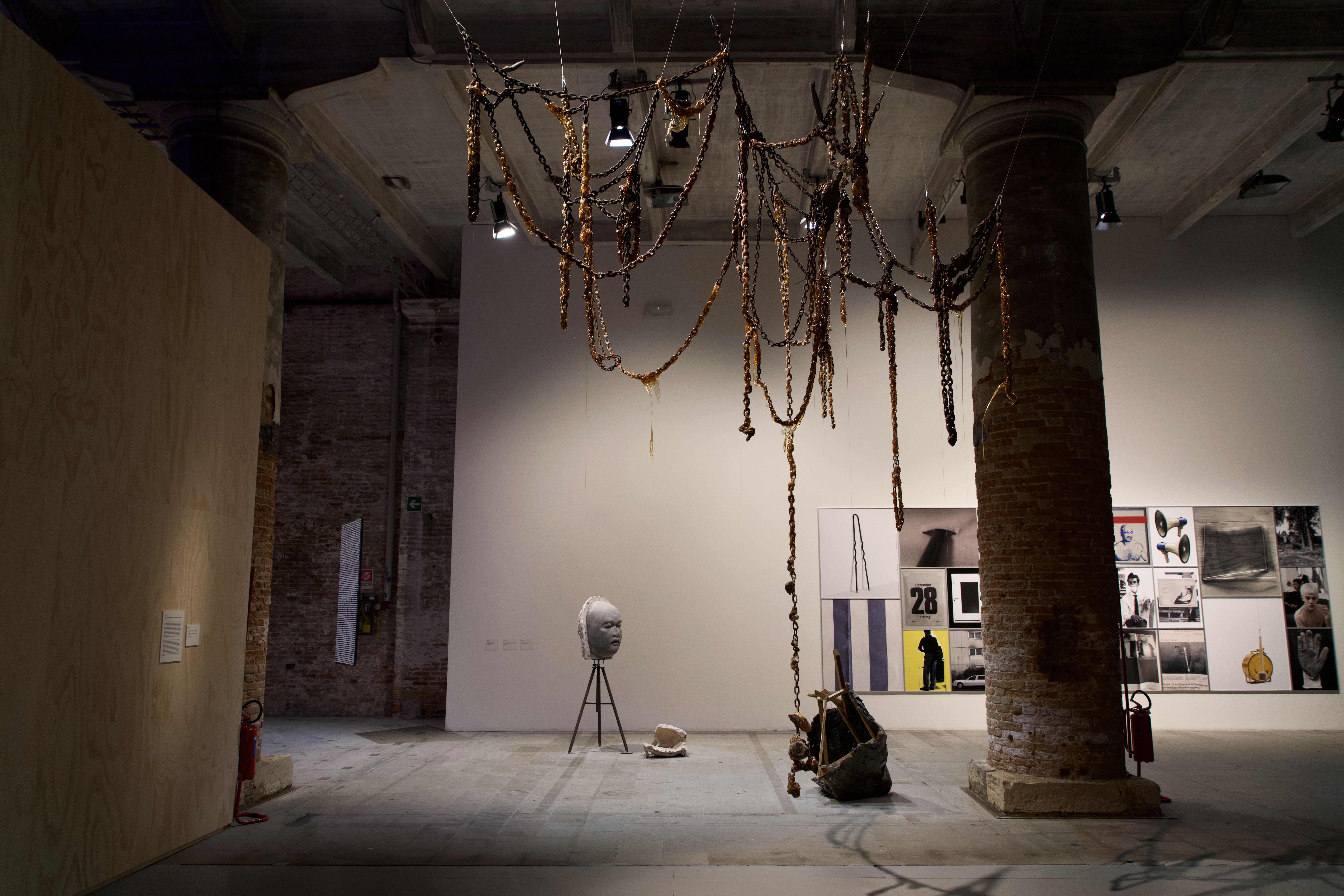
in ‘May You Live In Interesting Times’, 58th International Art Exhibition, La Biennale di Venezia, Venice, Italy, 2019
Image courtesy of the artist
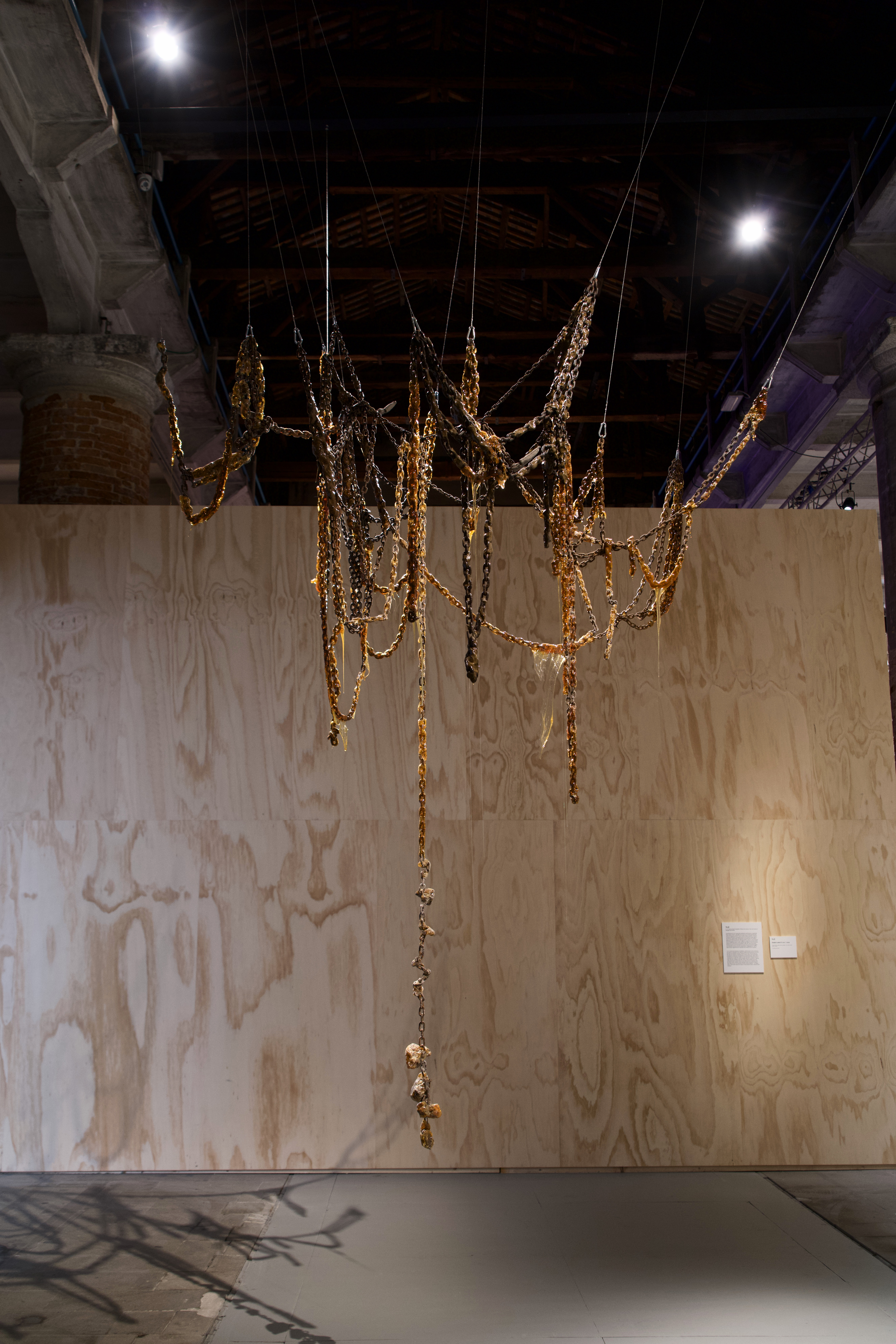
in ‘May You Live In Interesting Times’, 58th International Art Exhibition, La Biennale di Venezia, Venice, Italy, 2019
Image courtesy of the artist
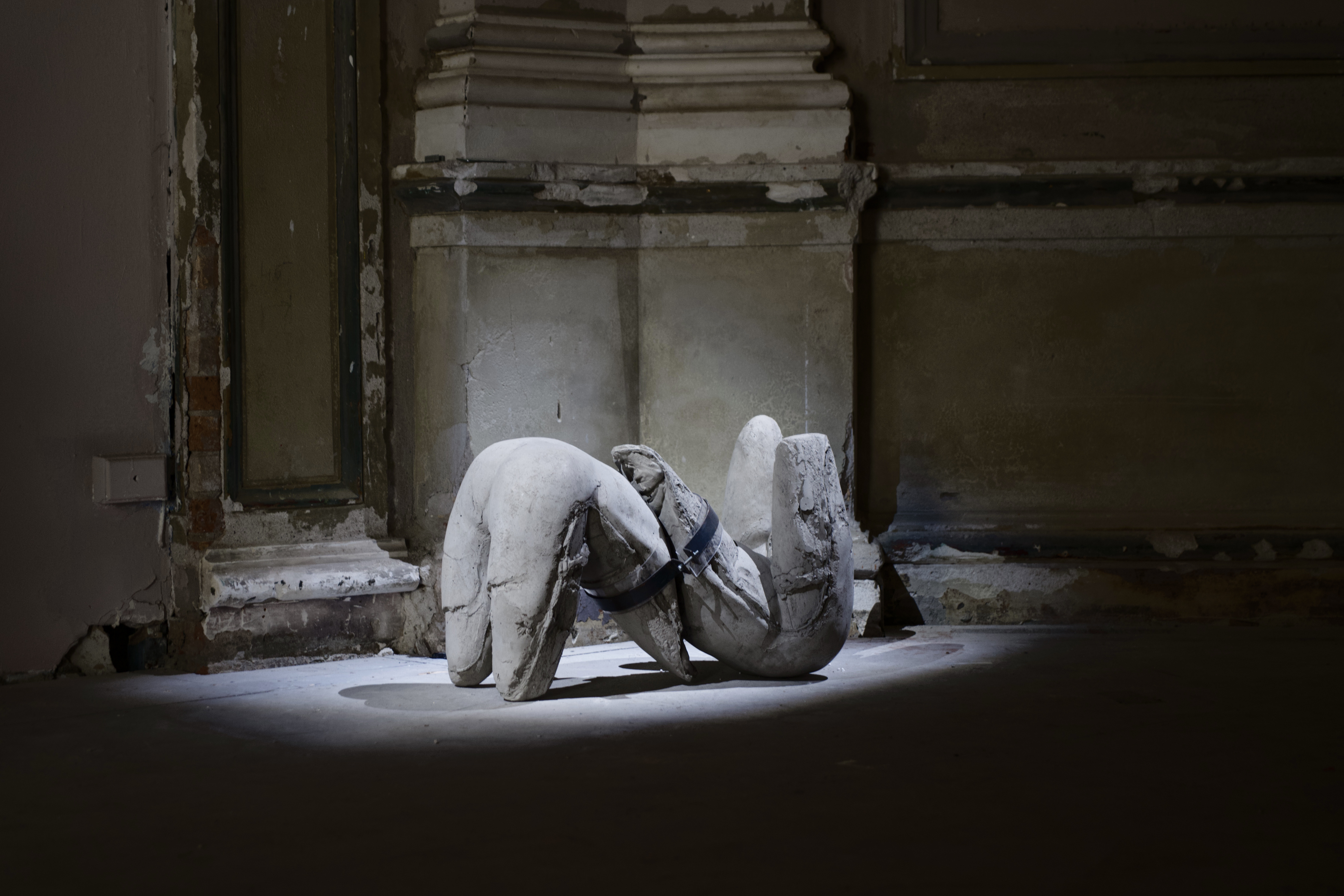
in ‘May You Live In Interesting Times’, 58th International Art Exhibition, La Biennale di Venezia, Venice, Italy, 2019
Image courtesy of the artist
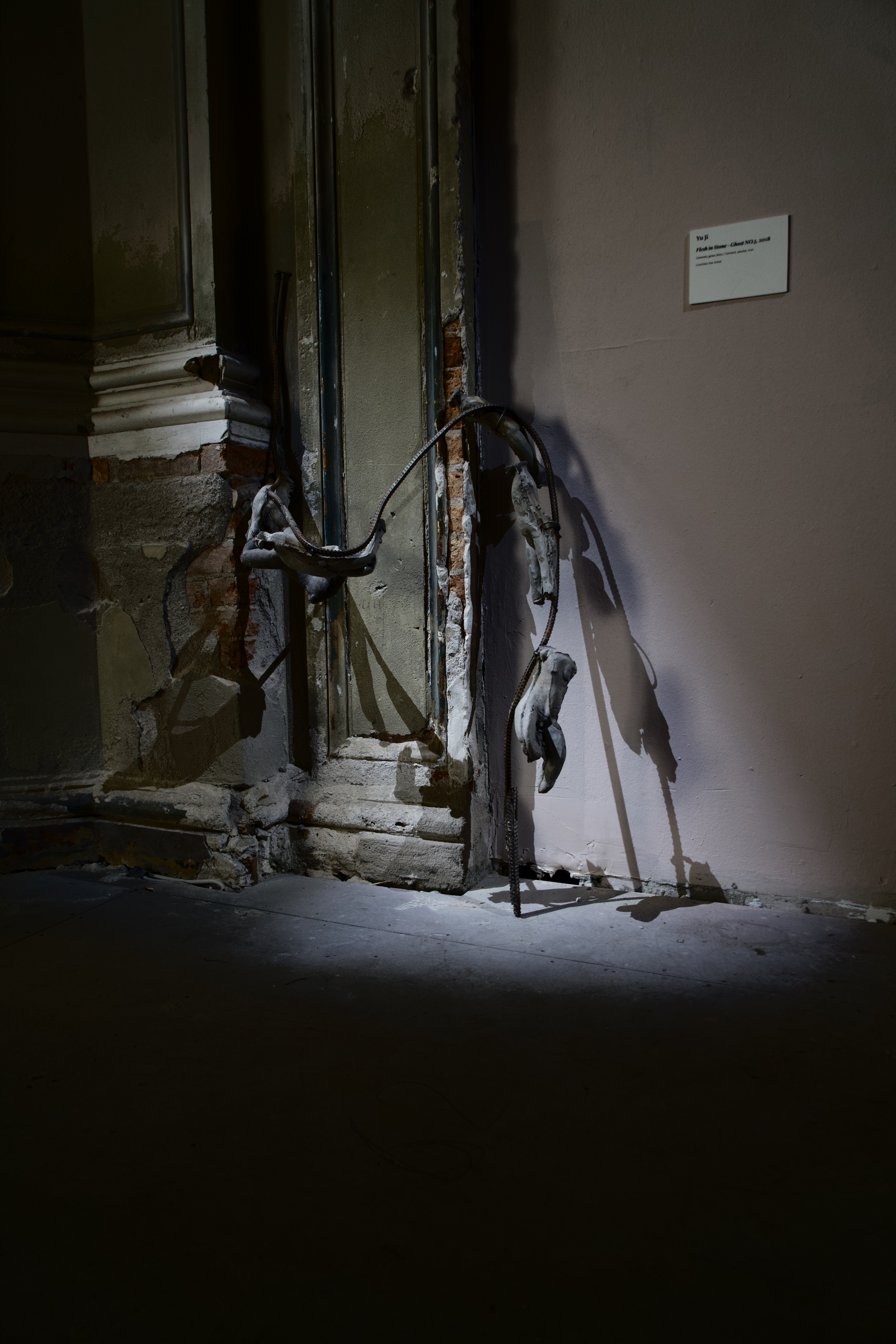
in ‘May You Live In Interesting Times’, 58th International Art Exhibition, La Biennale di Venezia, Venice, Italy, 2019
Image courtesy of the artist

in ‘ENTROPY’,
Faurschou Foundation, Beijing, 2018
Image courtesy of the artist
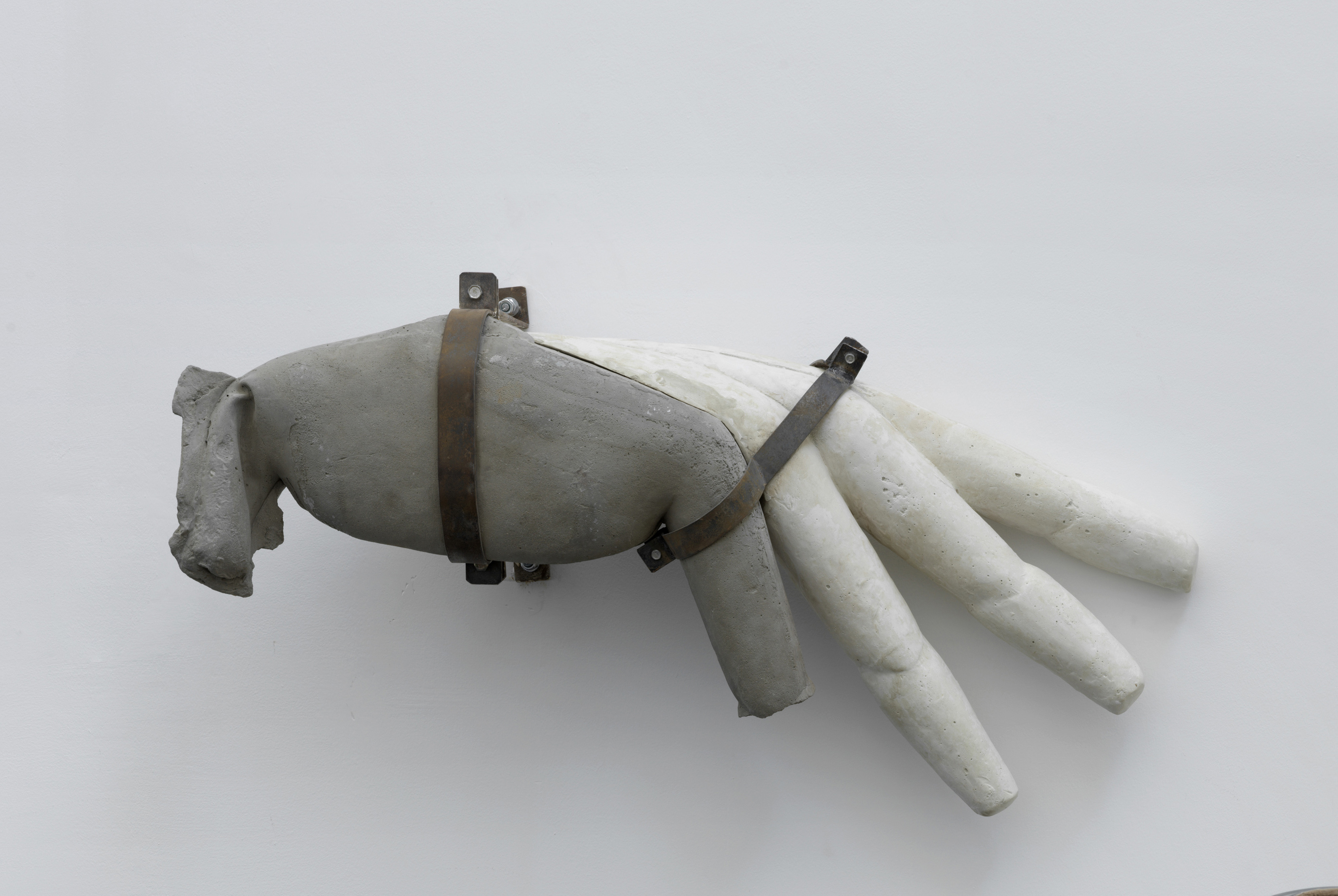
Cement, plaster, iron, 111 x 28 x 61 cm
Installation view, ‘ENTROPY’,
Faurschou Foundation, Beijing, 2018
Image courtesy of the artist

Iron chain, resin, putty, colophony, Dimensions variable
Installation view, ‘Hugo Boss Asia Art: Award for Emerging Asian Artists’, Rockbund Art Museum, Shanghai, China, 2017

On-site installation with screen printing, PVC soft board, Dimensions variable
Installation view, ‘Hugo Boss Asia Art: Award for Emerging Asian Artists’, Rockbund Art Museum, Shanghai, China, 2017

On-site installation with screen printing, PVC soft board, Dimensions variable
Installation view, ‘Hugo Boss Asia Art: Award for Emerging Asian Artists’, Rockbund Art Museum, Shanghai, China, 2017

Video
Installation view, ‘Hugo Boss Asia Art: Award for Emerging Asian Artists’, Rockbund Art Museum, Shanghai, China, 2017

Installation view, ‘Hugo Boss Asia Art: Award for Emerging Asian Artists’, Rockbund Art Museum, Shanghai, China, 2017

‘Why Not Ask Again: Arguments, Counter-arguments, and Stories’, 11th Shanghai Biennale, Power Station Art Museu, Shanghai, China, 2016

Cement, wire, reclaimed wood, brick, fruit, strap etc., 98 x 155 x 48 cm
Installation view, ‘Why Not Ask Again: Arguments, Counter-arguments, and Stories’, 11th Shanghai Biennale, Power Station Art Museu, Shanghai, China, 2016

Cement, sand, iron mesh, 125 x 120 x 85 cm
Installation view, ‘Why Not Ask Again: Arguments, Counter-arguments, and Stories’, 11th Shanghai Biennale, Power Station Art Museu, Shanghai, China, 2016

Plaster, iron mesh, hair, flax thread, 160 x 60 x 130 cm
Installation view, ‘Why Not Ask Again: Arguments, Counter-arguments, and Stories’, 11th Shanghai Biennale, Power Station Art Museu, Shanghai, China, 2016

#3: Acrylic, cement, rebar, sand, stone, moss, 130 x 80 x 8 cm; #4: Acrylic, cement, rebar, sand, stone, moss, 165 x 60 x 8 cm
Installation view, ‘Why Not Ask Again: Arguments, Counter-arguments, and Stories’, 11th Shanghai Biennale, Power Station Art Museu, Shanghai, China, 2016

Acrylic, cement, rebar, sand, stone, moss, apple, bandage, 116 x 80 x 8 cm
Installation view, ‘Why Not Ask Again: Arguments, Counter-arguments, and Stories’, 11th Shanghai Biennale, Power Station Art Museu, Shanghai, China, 2016